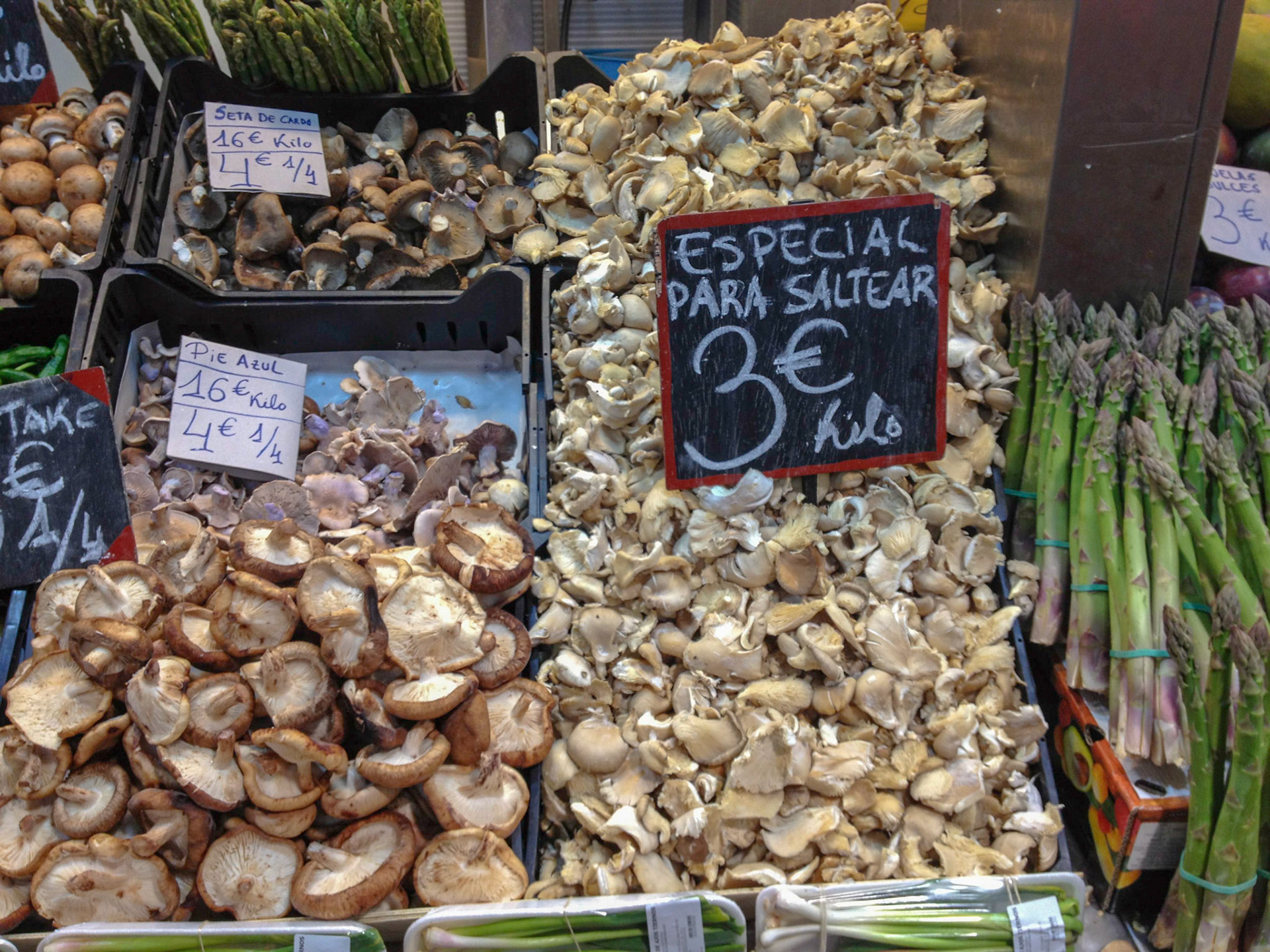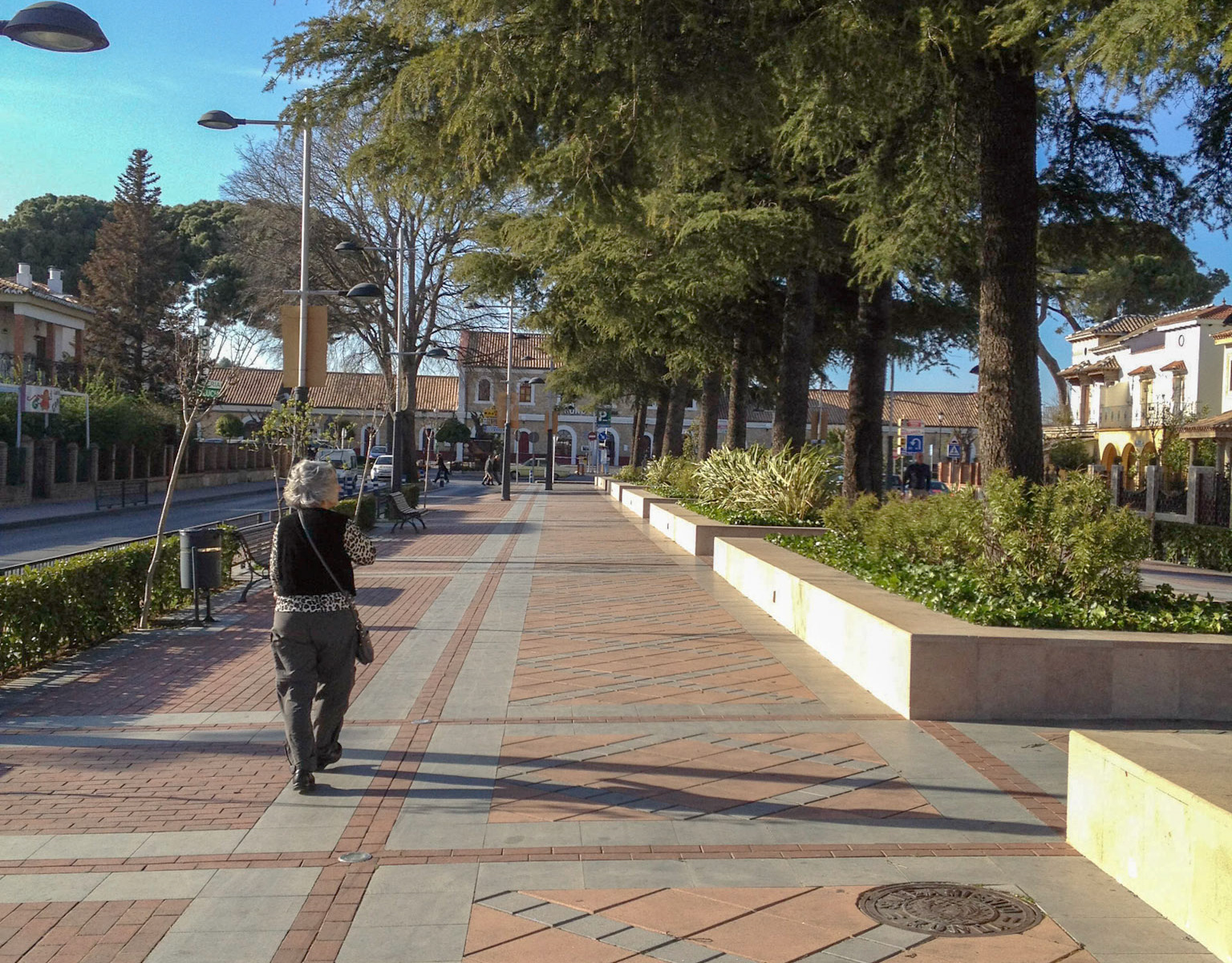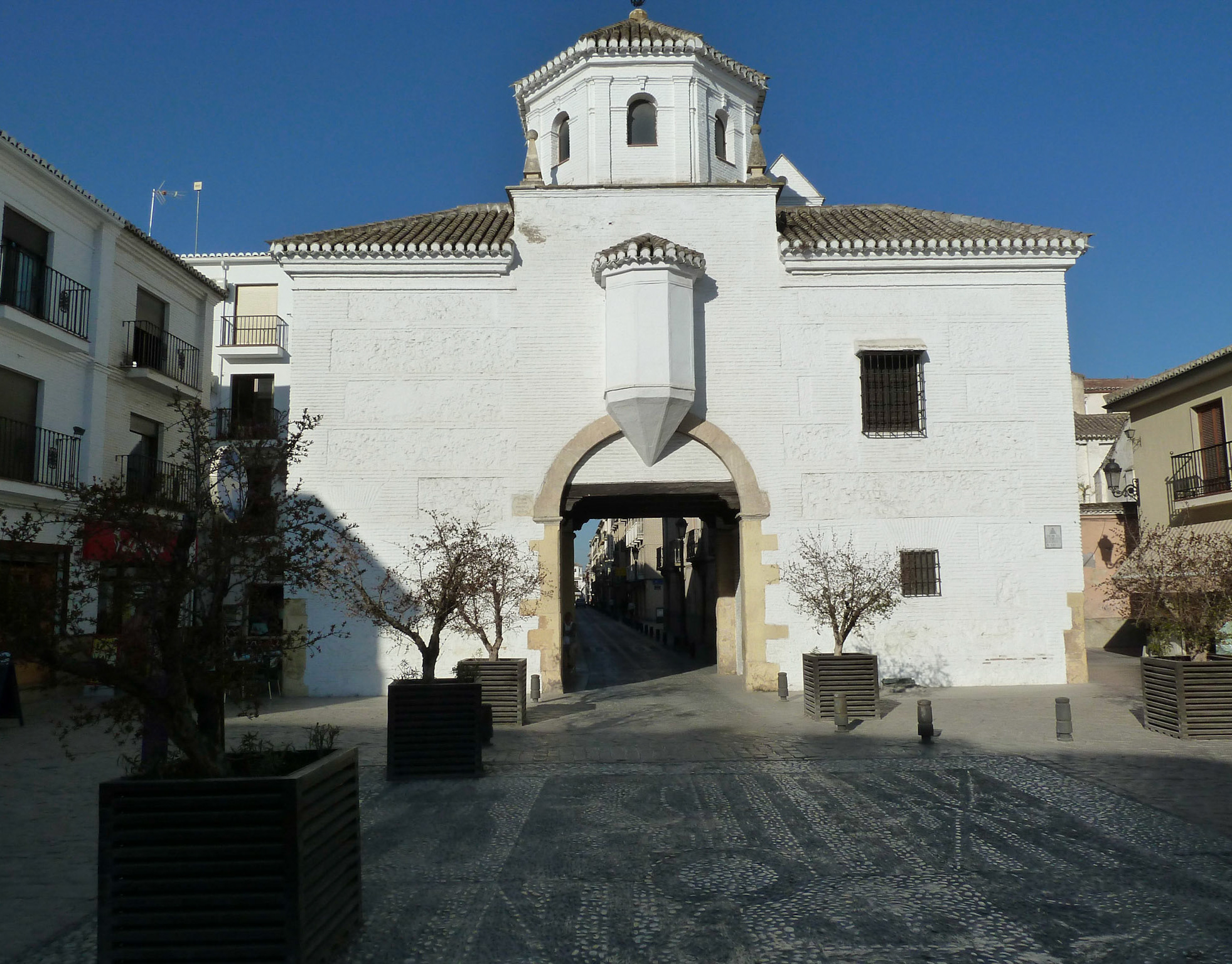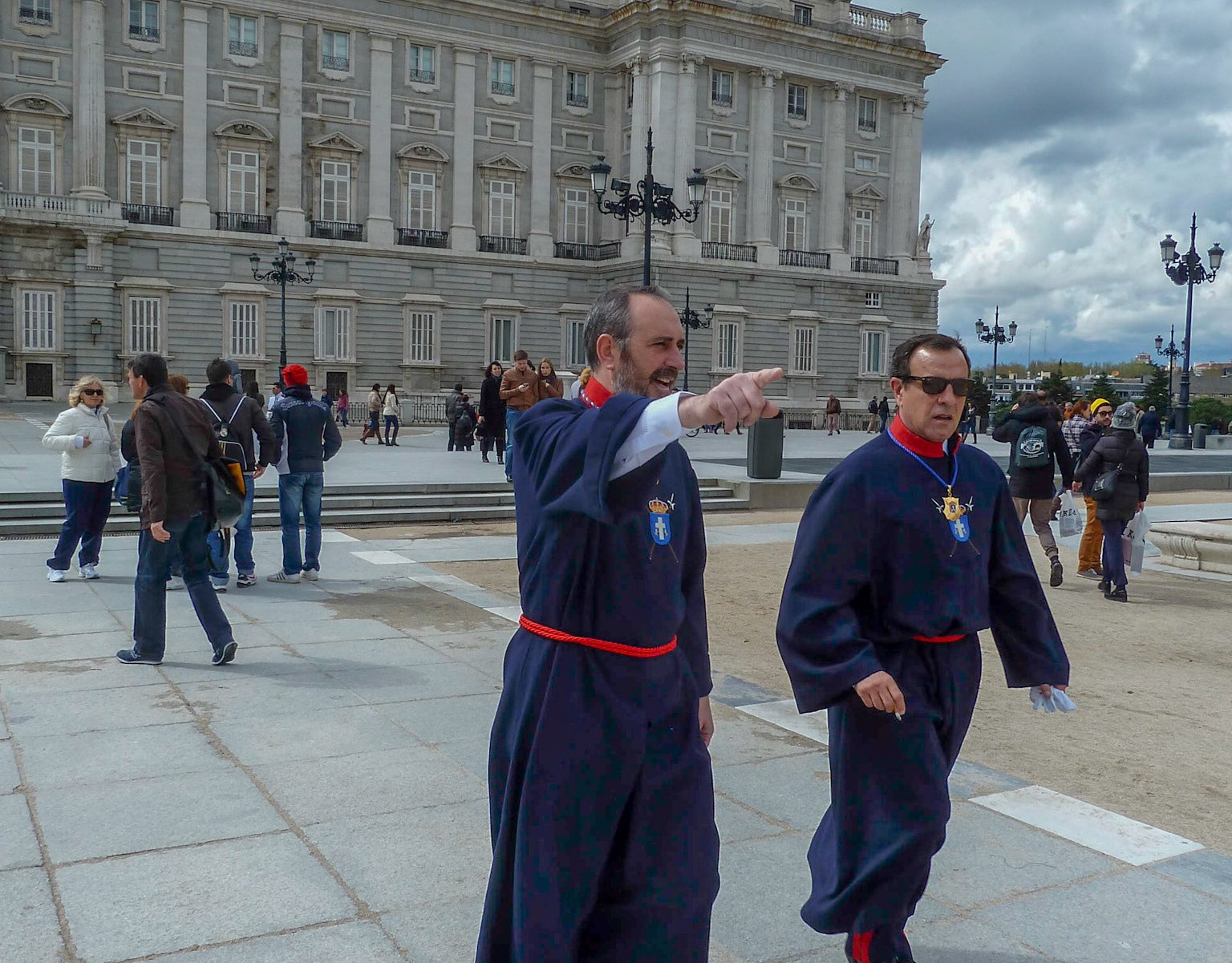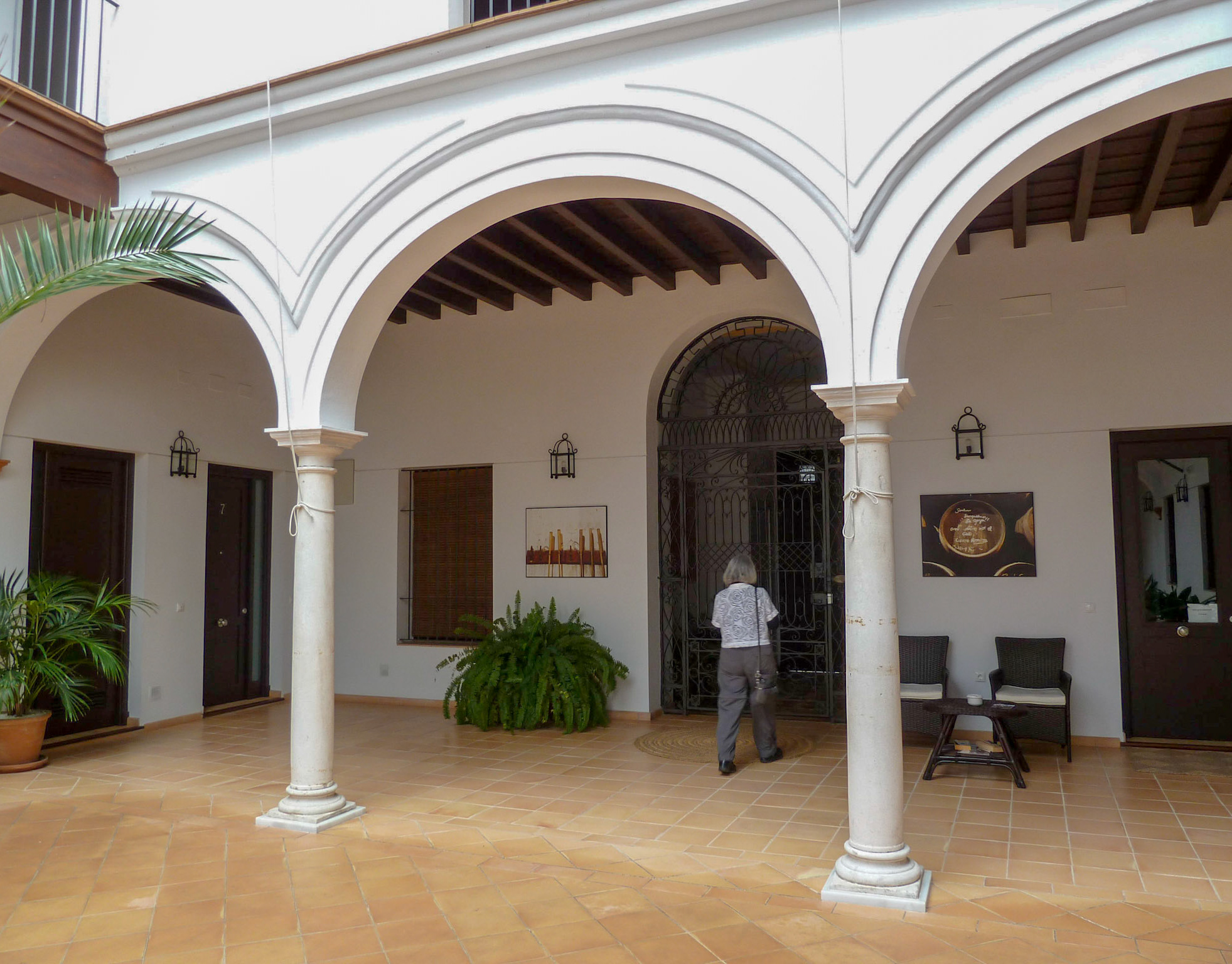We had been in Amsterdam for my first short Fulbright assignment and figured that we were in the right place to catch a plane to Malaga. We'd come through this ancient city on our way back from Morocco a few years before and liked it. This was an opportunity to get to see more and to again use it as our gateway—this time to the south of Spain. We had reservations at a B&B in Arcos de la Frontera, one of the white towns in the hills, and after that we would drive over to Sanlúcar de Barrameda on the coast beyond Jerez de la Frontera.
Malaga is an ancient port. It has served various peoples and empires for thousands of years and is a major link to North Africa, Morocco is right across the way. This is the mouth of the Med.
The archaeology was a major draw. When we came through on our way north from Morocco, we'd only had a short visit to the monumental excavations on the hill downtown, where everyone from the Etruscans to the Moors had lived. We both also like working ports, and this was sure one. We were quite pleased when the hotel room looked out over the cranes along the port and the cathedral was in the same frame.
The downtown, which is especially lovely at night, is old and well maintained. Expansive parkways and pedestrian-only streets make it inviting. Parks line a long stretch of the harbor. We had a decent view from our hotel, but we were out walking as much as possible. Storms must blow through, but not while we were there.
Up the hill, things steadily change to older and poorer, where we found some interesting small parks and shops. English might work downtown, but less so further away. Not very far at all. It was good to practice our little bits of Spanish, although I must say that even short, sequential immersions keep building our vocabularies, especially for reading. Near the top of the hill, we bought snacks and ate them while watching kids play in a small neighborhood square. Then we walked down a slope we hadn't take coming up and arced around the hill and back into the downtown center. There were more restaurants than we could seriously consider. One after another, their tables and umbrellas staked claim to territory, but that allowed us to actually see the food. So we walked through the several major blocks to see what others were eating. Clearly, seafood should be on our menu. With better guidance, we'd have probably found something special, but we were satisfied with what we got. I had hoped to again have the white gazpacho I'd eaten in Malaga before, but no luck.
We had had a long afternoon and evening. Quite a few miles of climbing on cobbles and stairs. We slept well and were ready to explore the old Moorish castle and the other excavations the next morning. It's impossible to miss the Moorish influences on art and architecture, but seeing hints of the splendor that was there at that empire's zenith was worth the time. We'd picked up bits and pieces of its history in Provence, just as we'd gotten pieces of Roman history as far west as Exeter.
After our hiking and garden visits, we packed and headed for the car rental near the airport. We almost had a problem right after leaving the hotel. We'd pulled our luggage to the nearest bus stop. A guy who was also standing there started chatting in English, admiring my cowboy boots. All of a sudden, I felt his hand in my pants pocket. I slapped his hand and he quickly left. He hadn't gotten anything except away. We made it to the airport, picked up our car, and headed for the hills and the famous white cities. We'd eventually drop the car at the main train station in Madrid on Easter Sunday—an adventure I was rueing. I had a hunch that the center of that city on the holiday would be jammed with traffic and I'd be paddling randomly in the currents trying to find the car return, which always seems to be awkwardly located. Stick with me; I'll try to get there in a while.
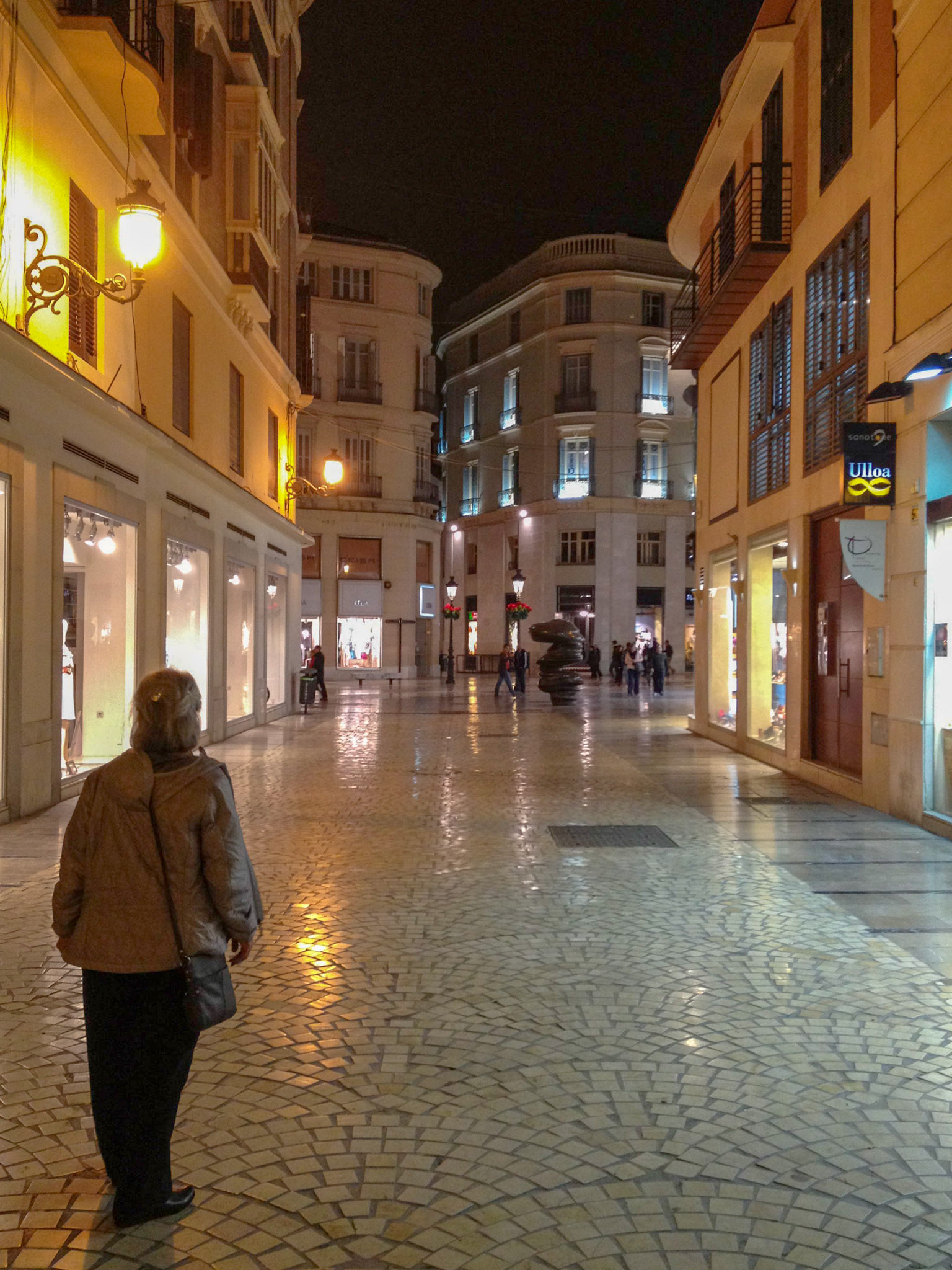
Pedestrian only downtown. Polished granite streets.
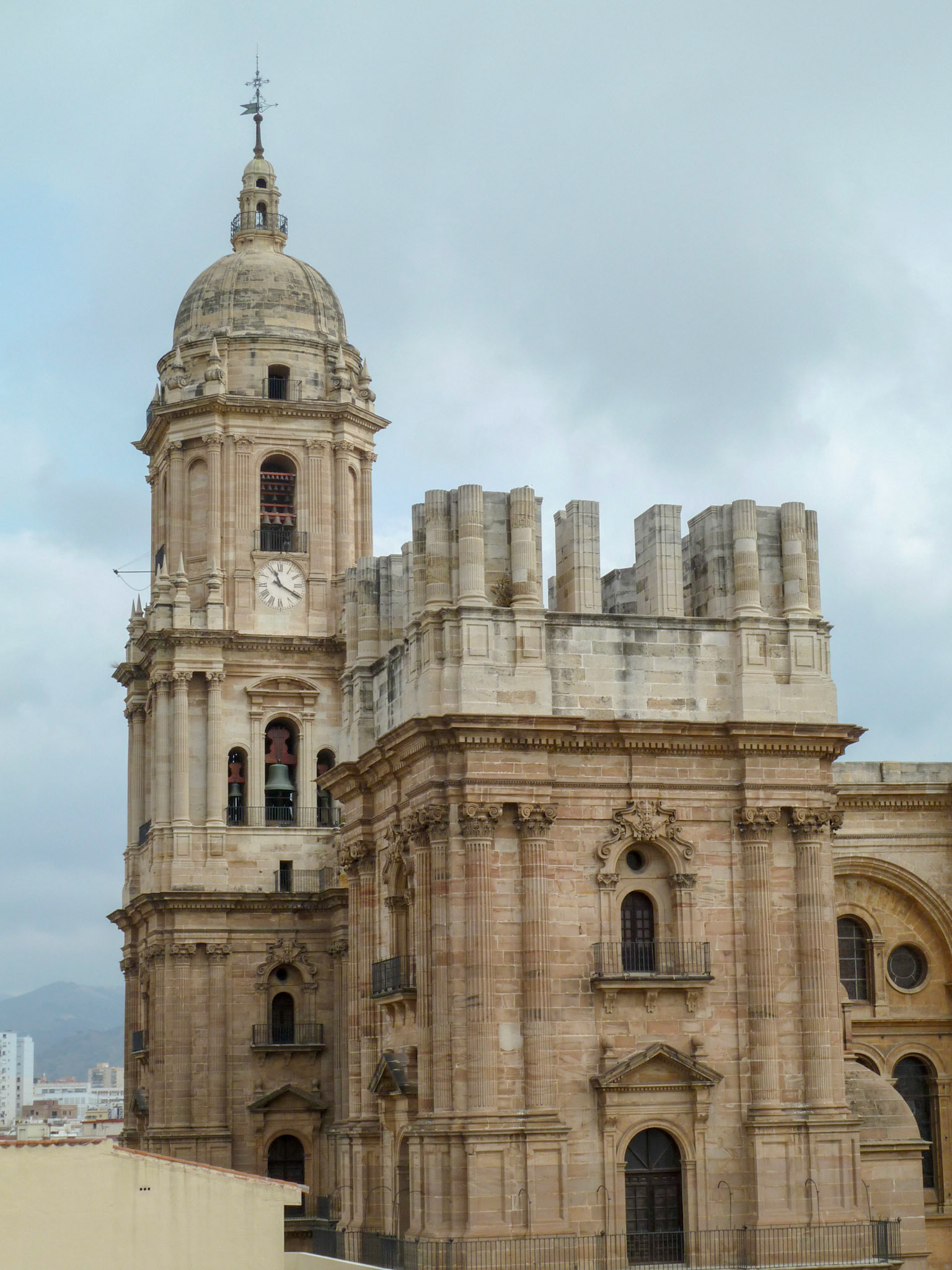
From our hotel window.
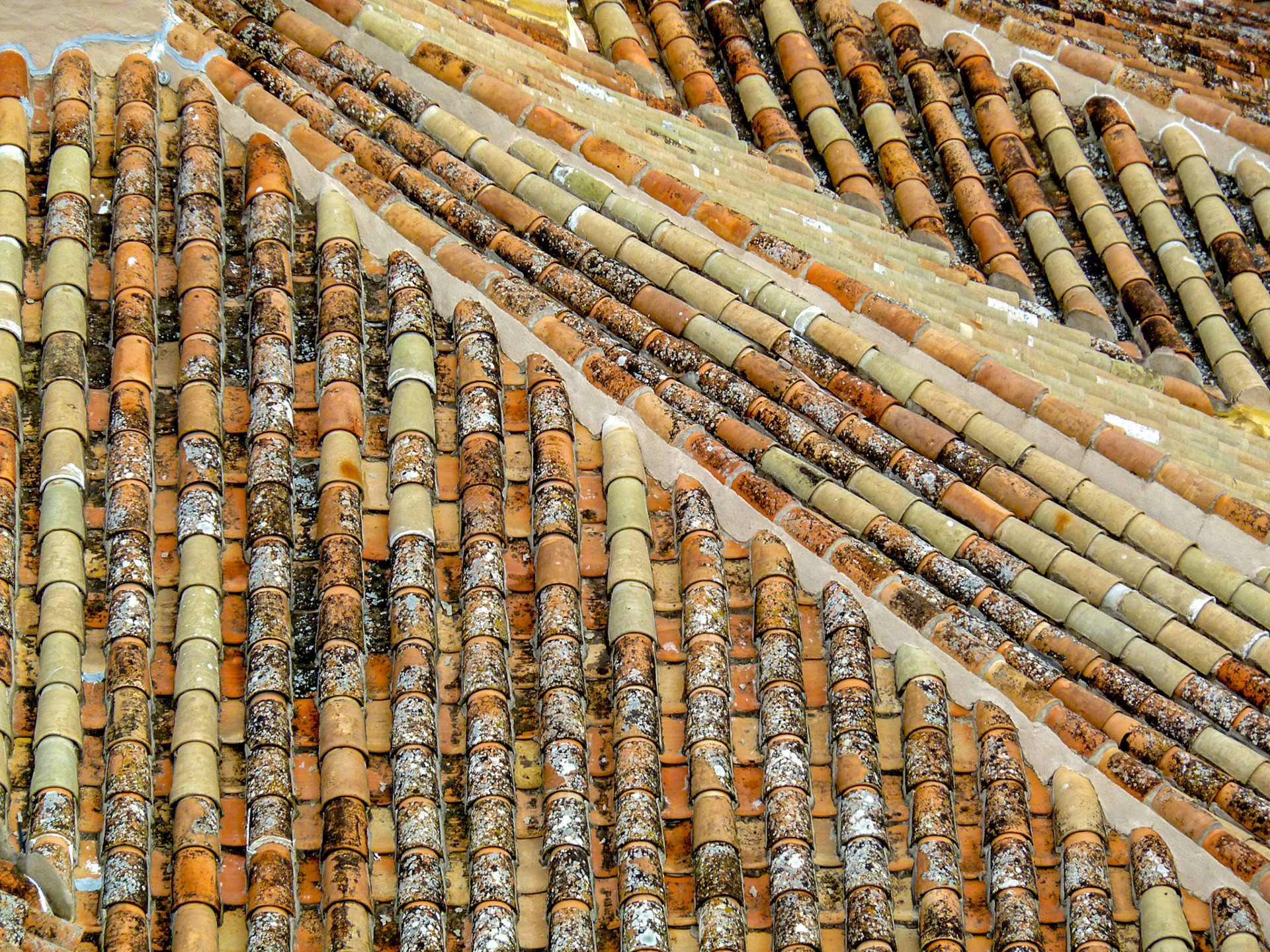
Tile and stone everywhere.
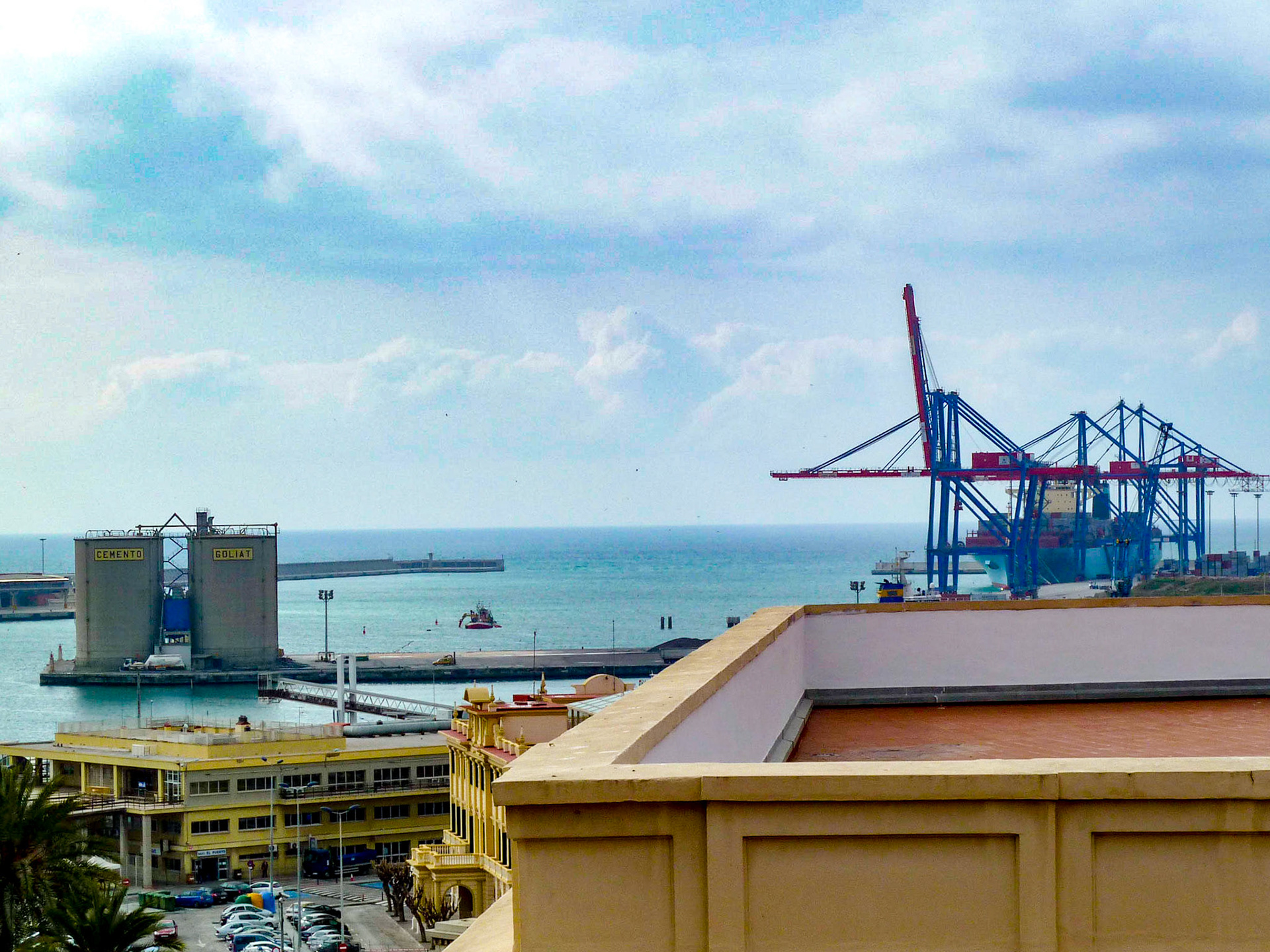
The port is large and important.
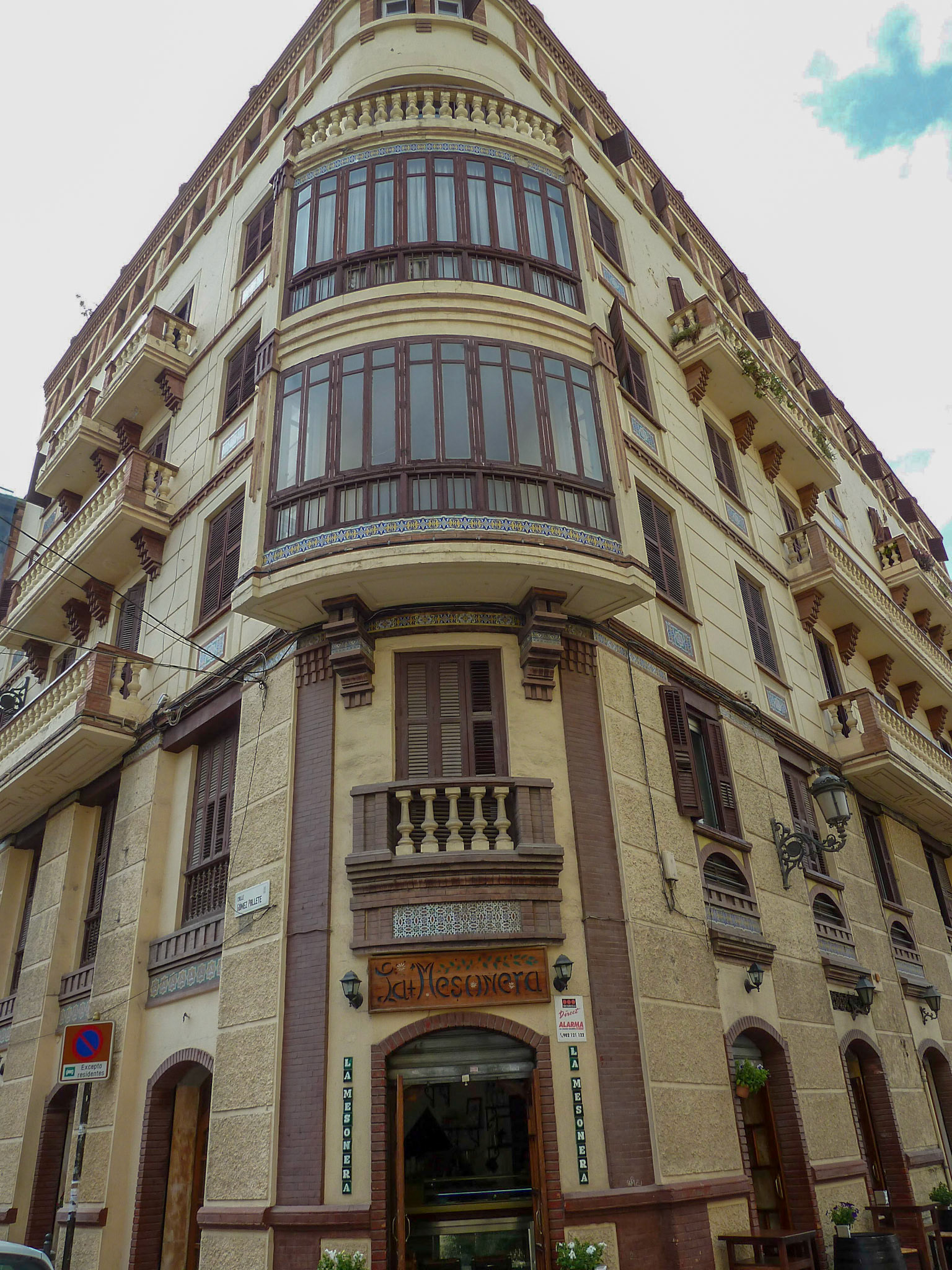
On the corner.
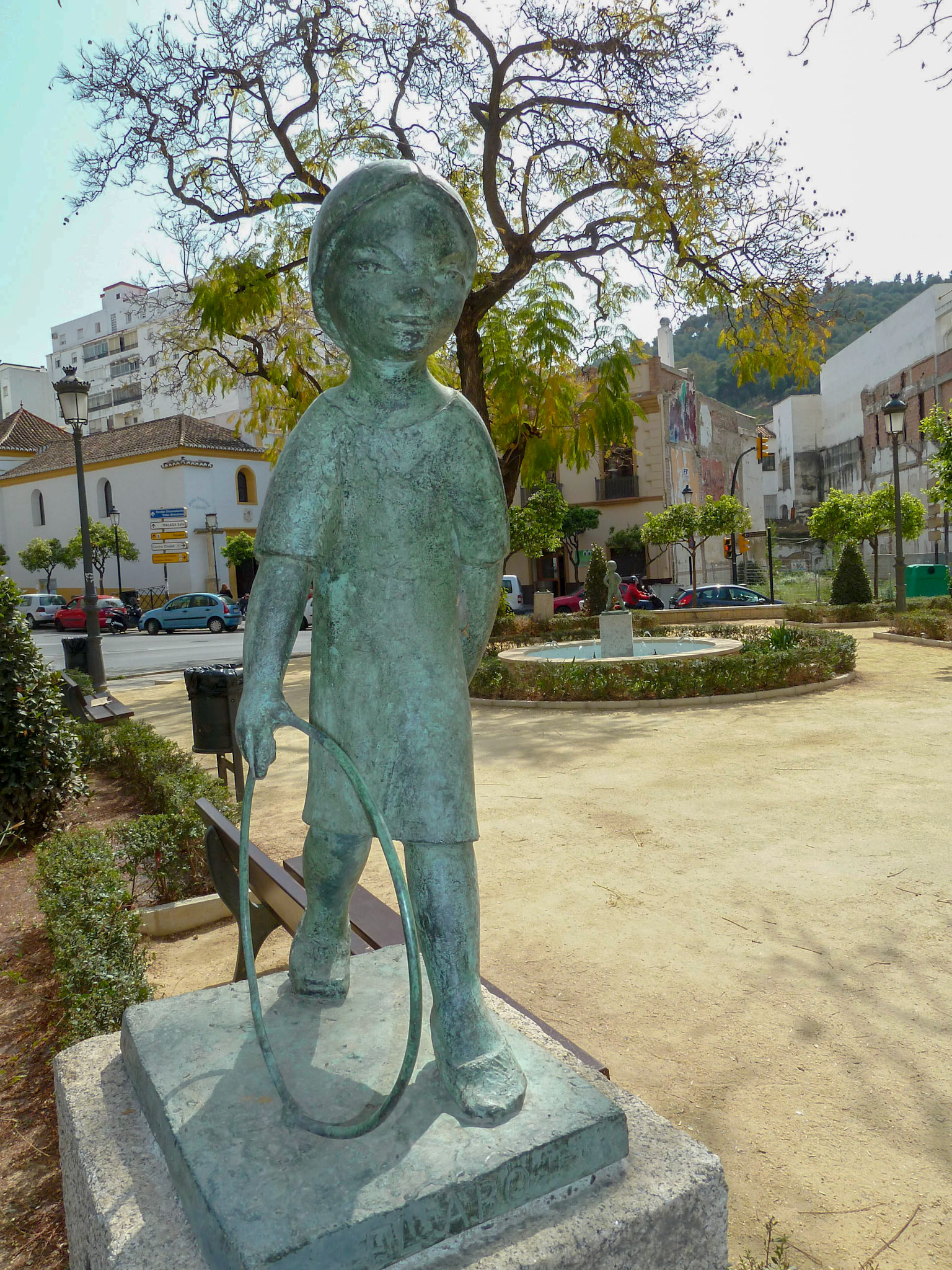
Quite a few of these scattered through neighborhoods.
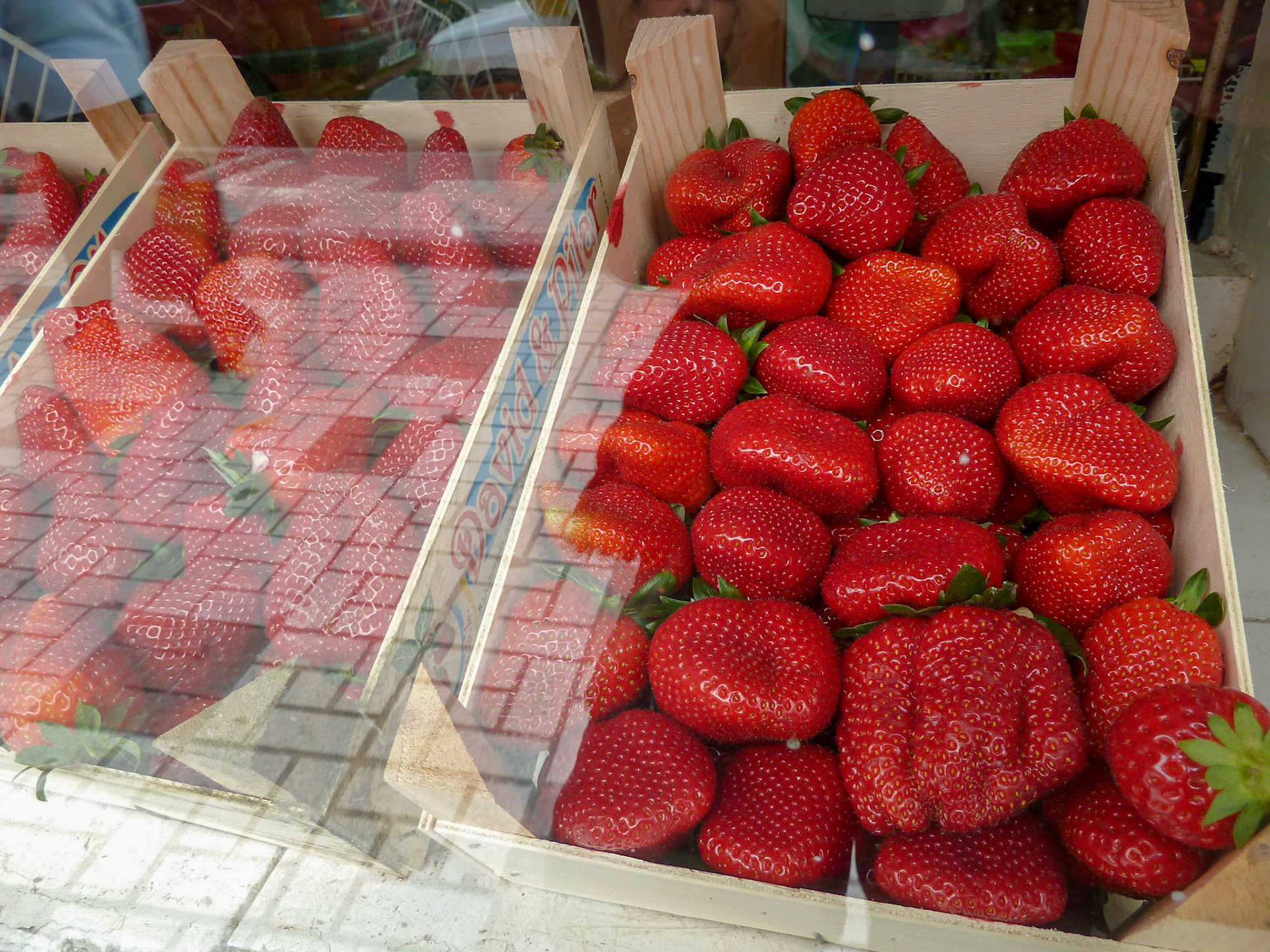
We're market mavens.
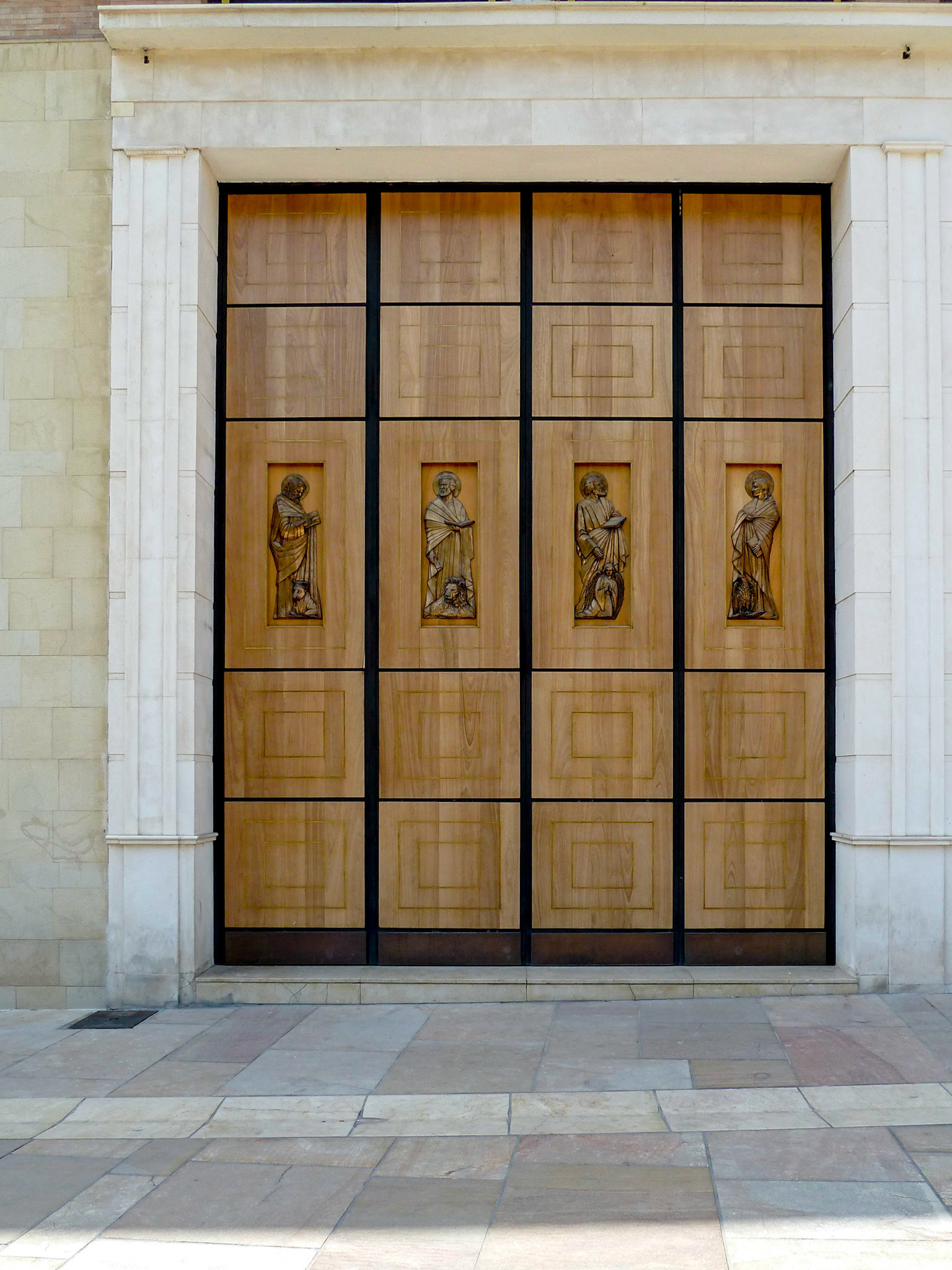
Door.
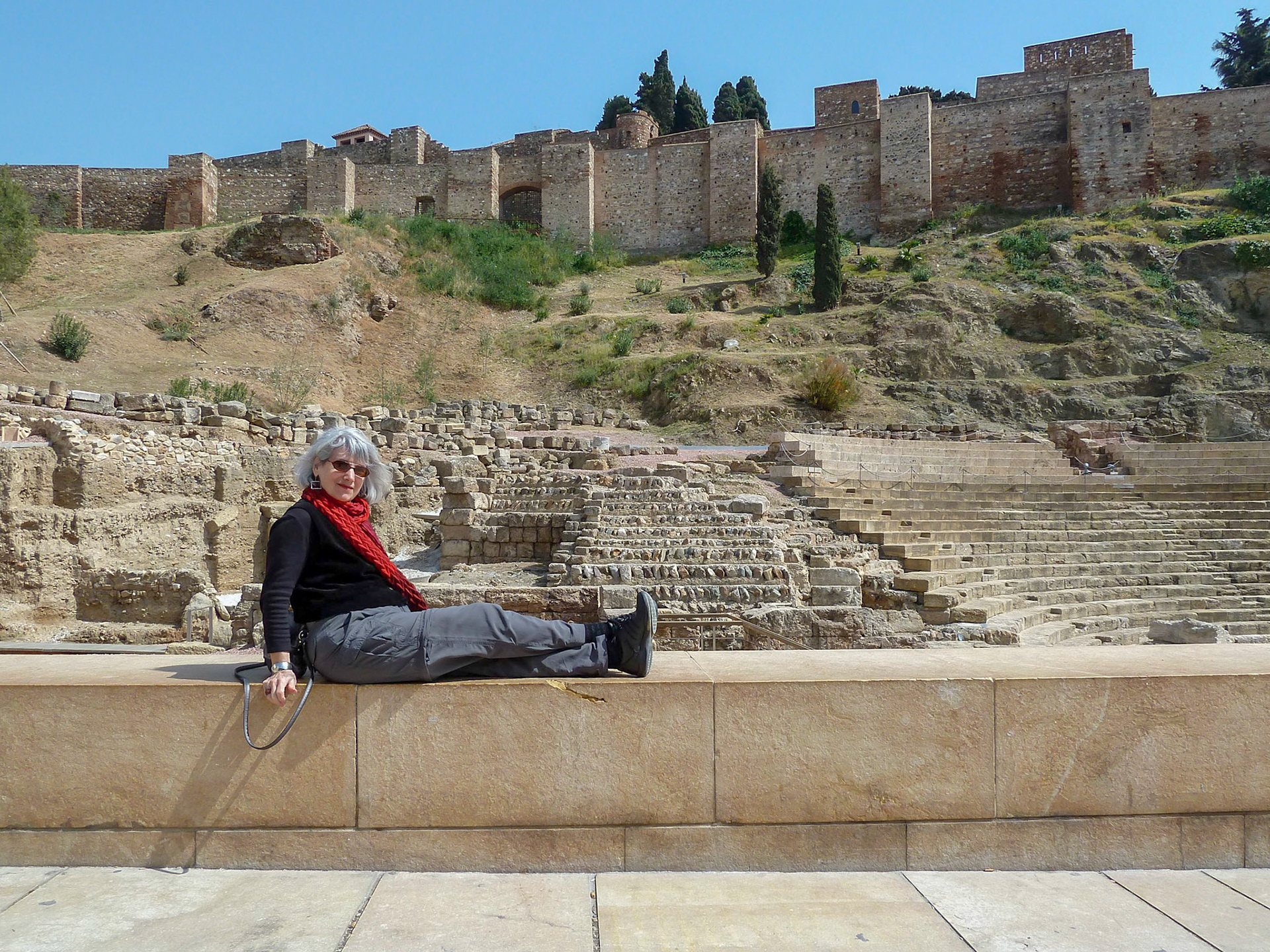
Linny in front of the dig and castle.
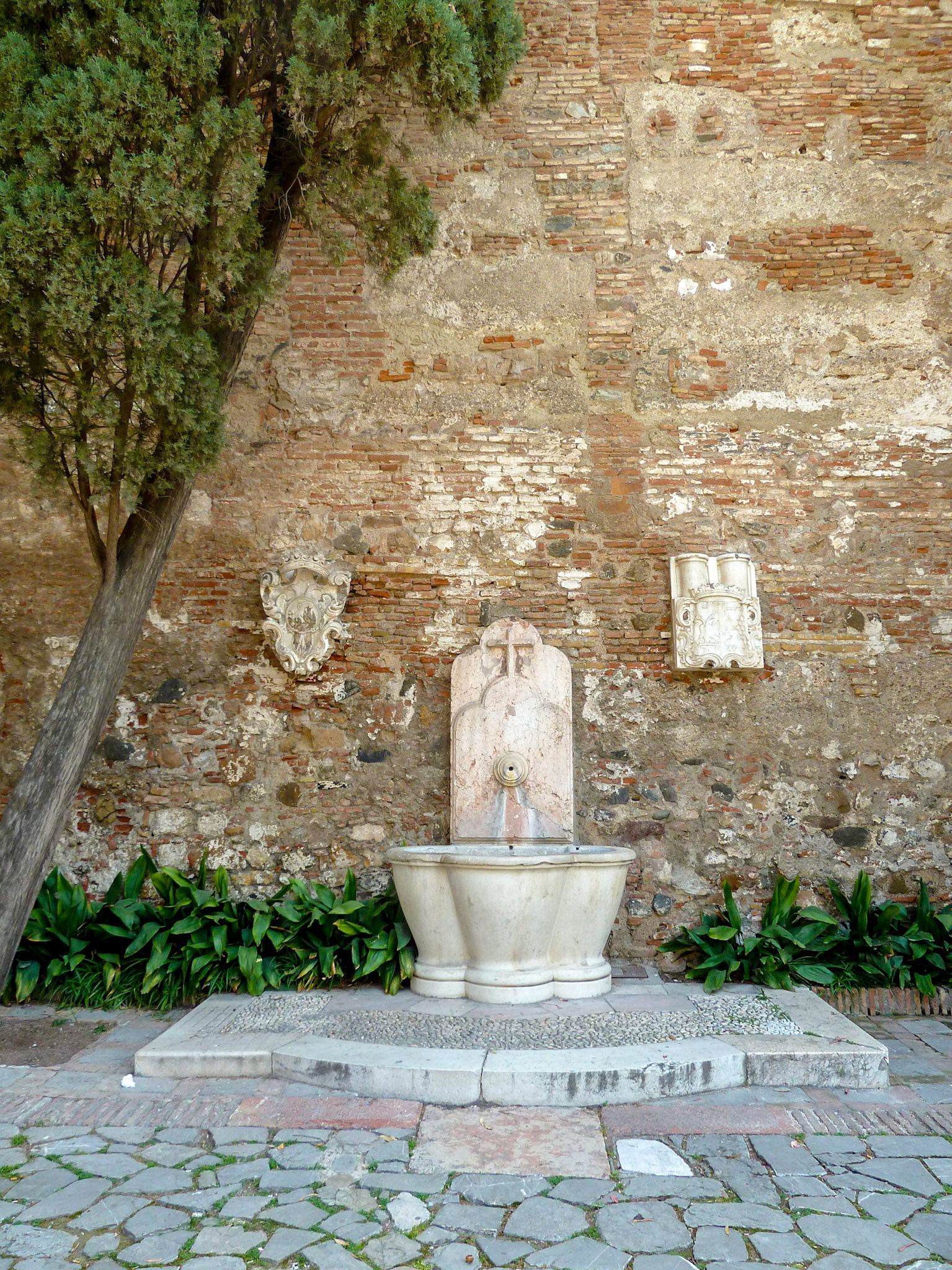
Rehab haa brought this place to life.
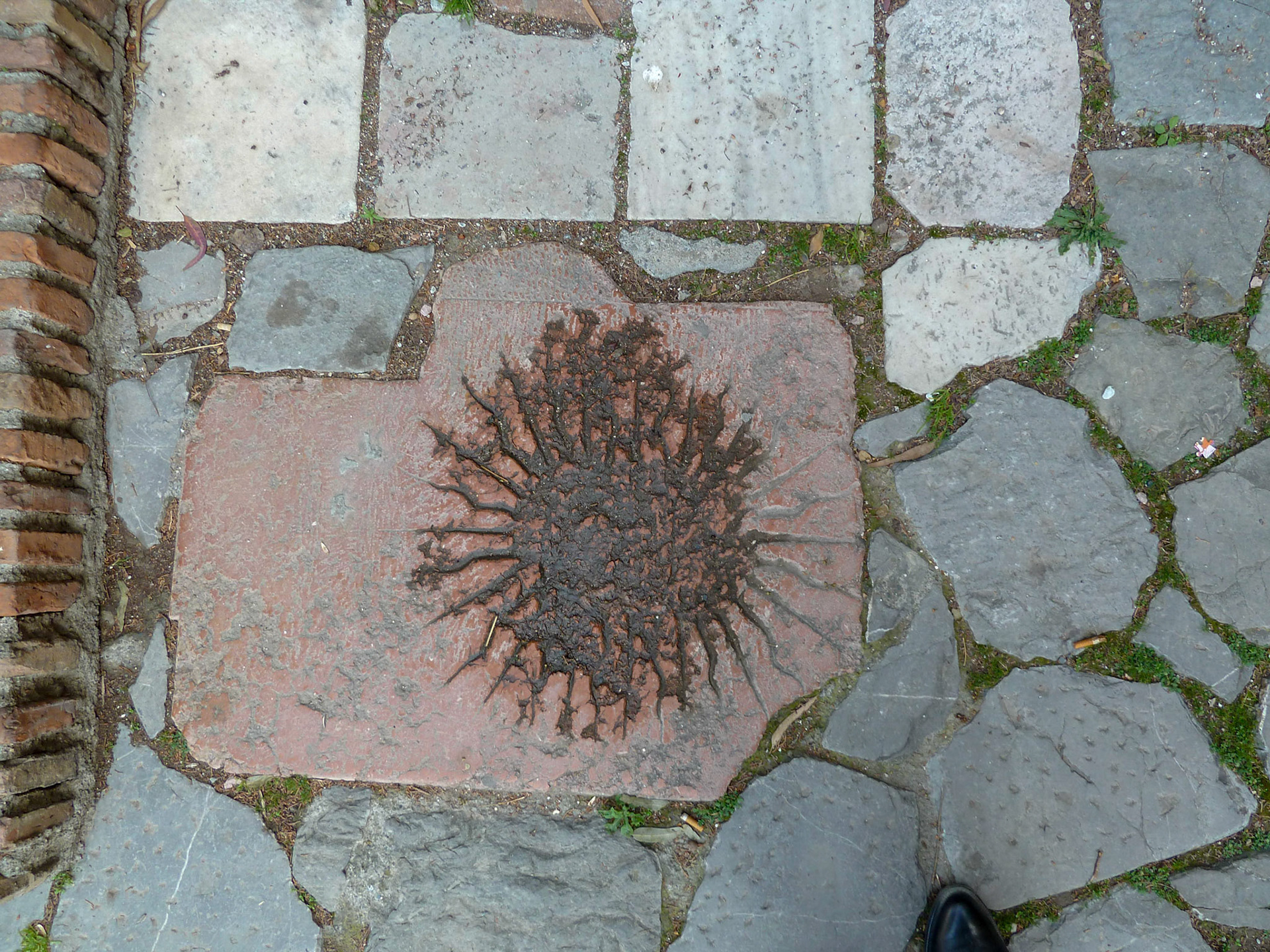
Stones
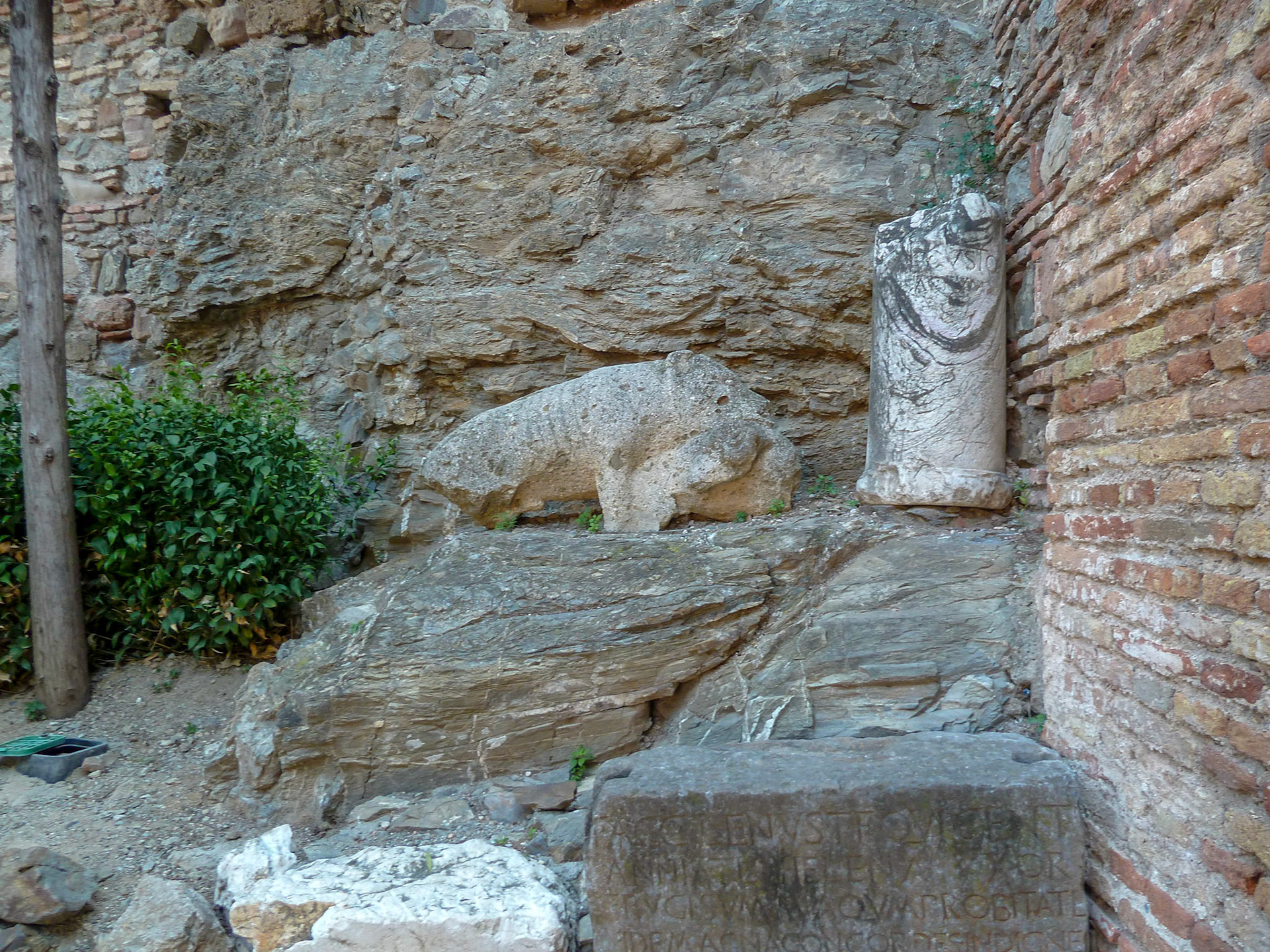
Bits.
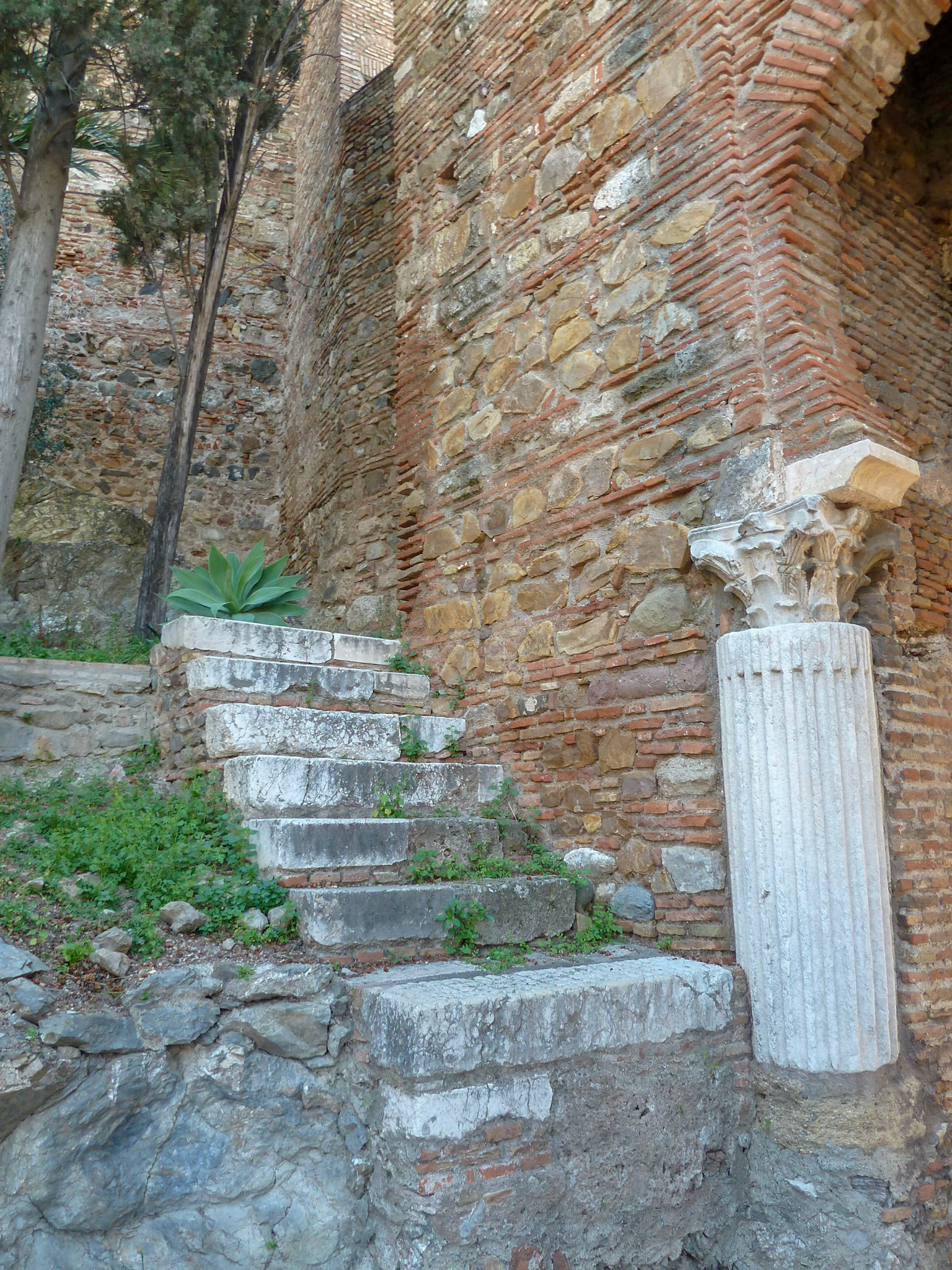
Pieces.
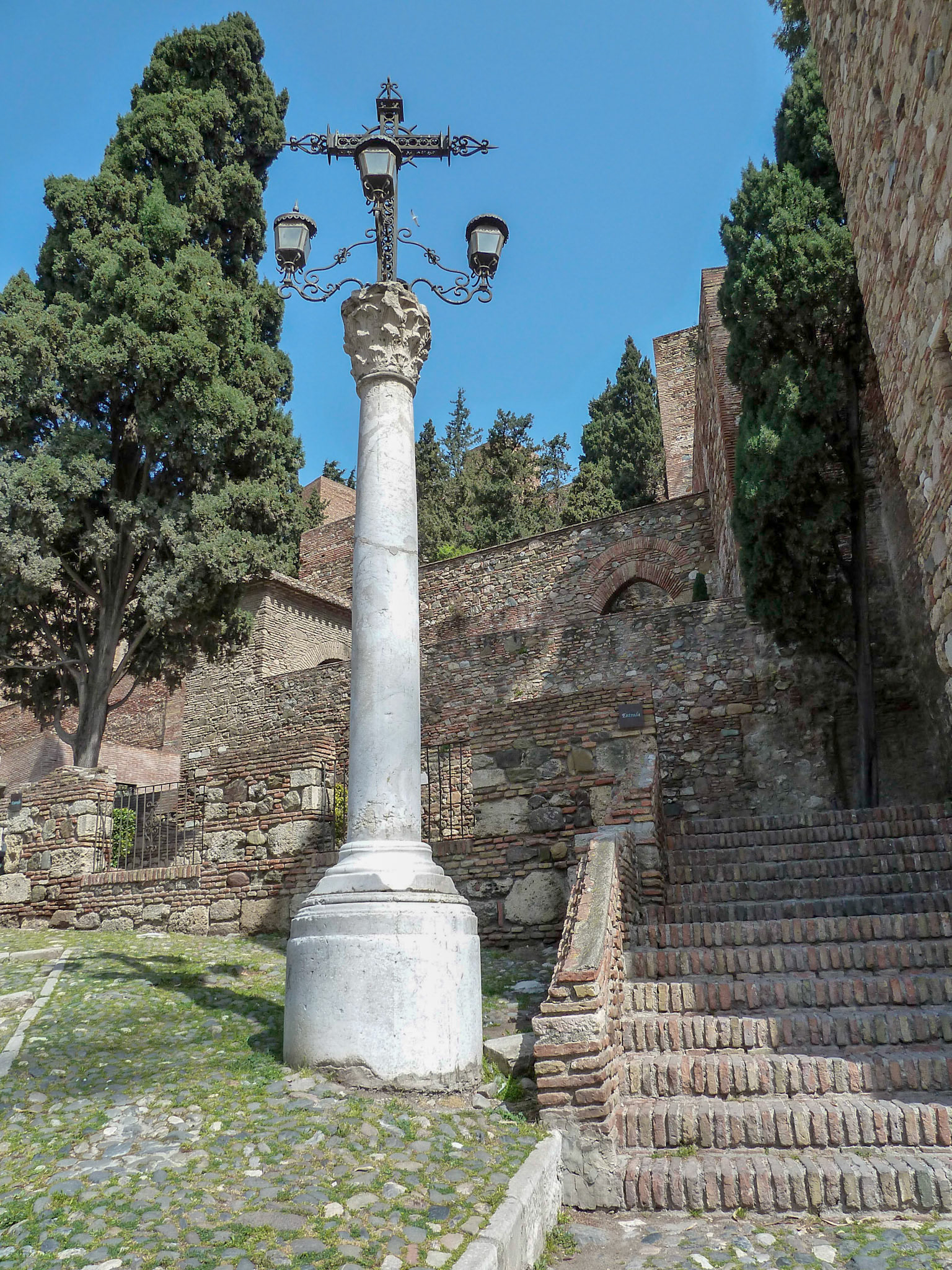
A long view.
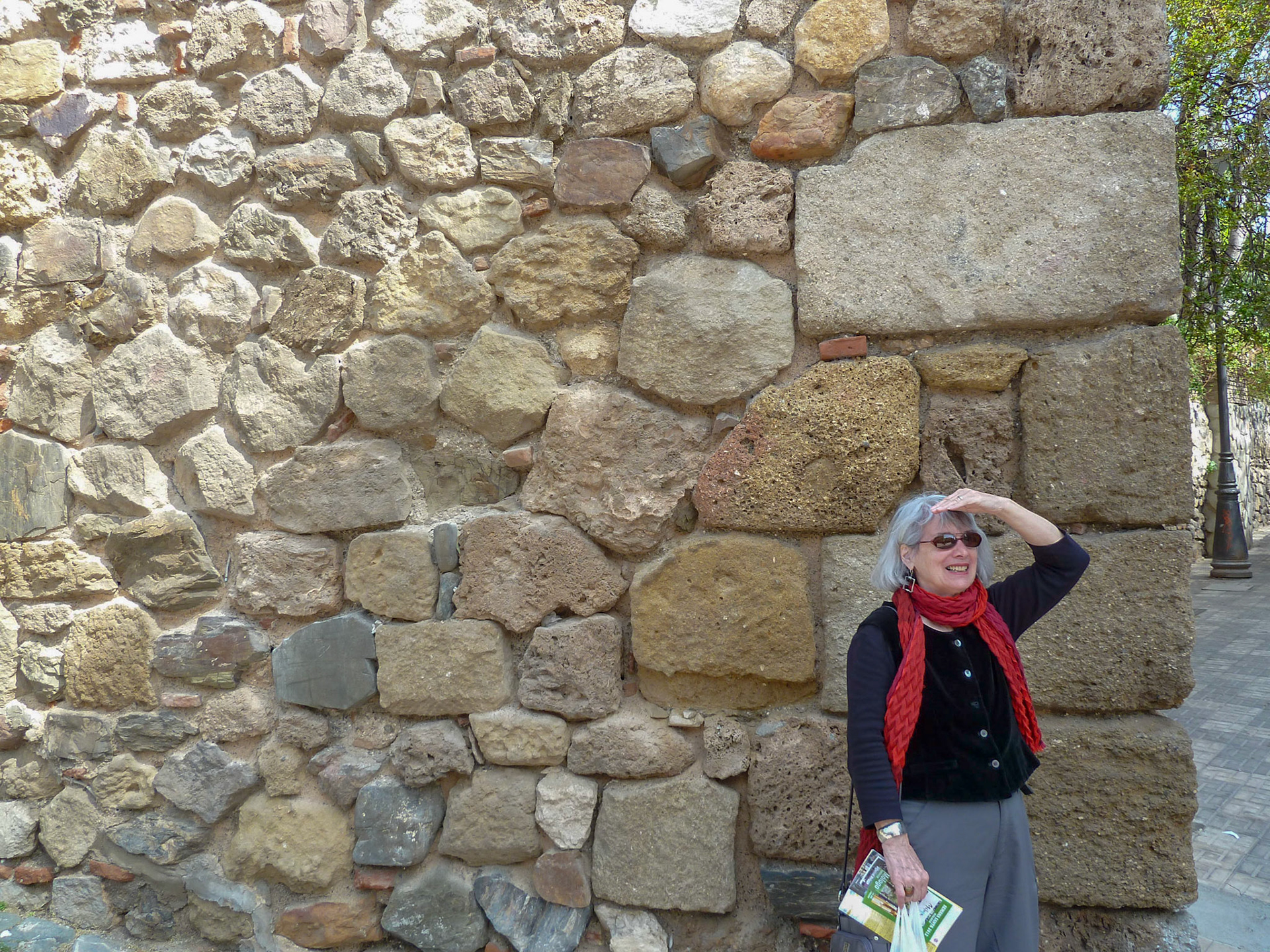
Rocks of many ages and Linny.
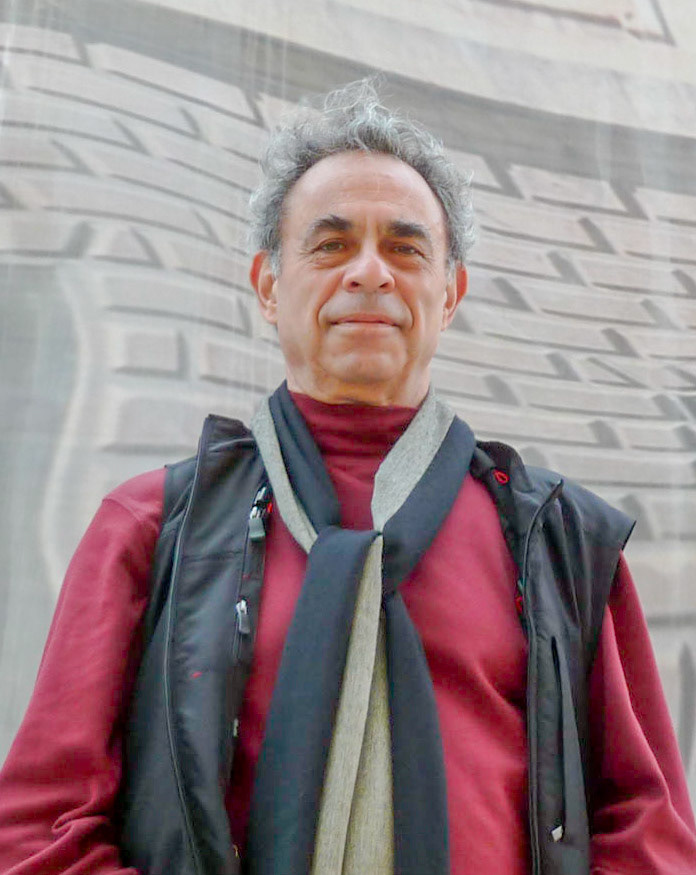
Dennis.
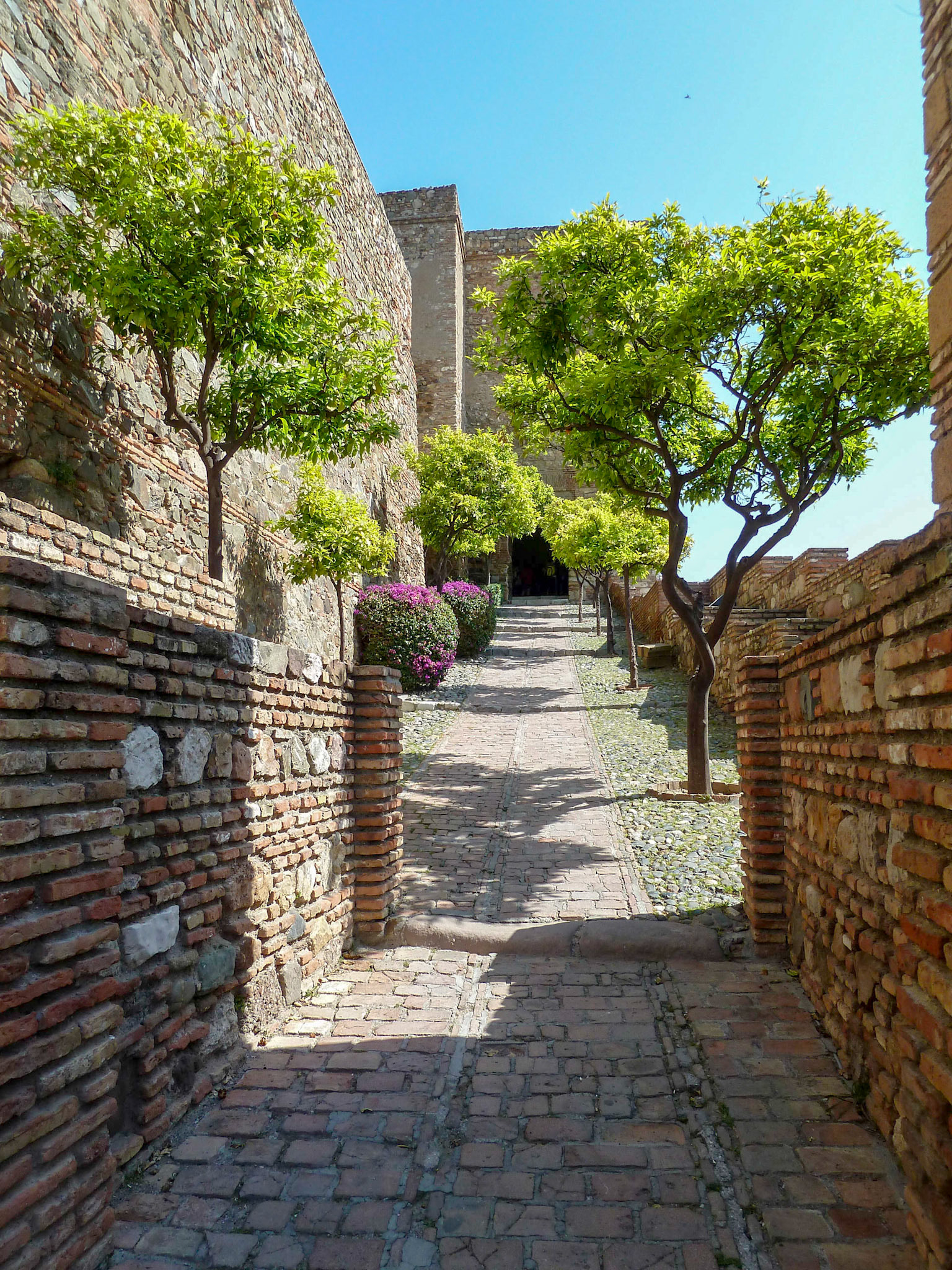
A walk above the city.
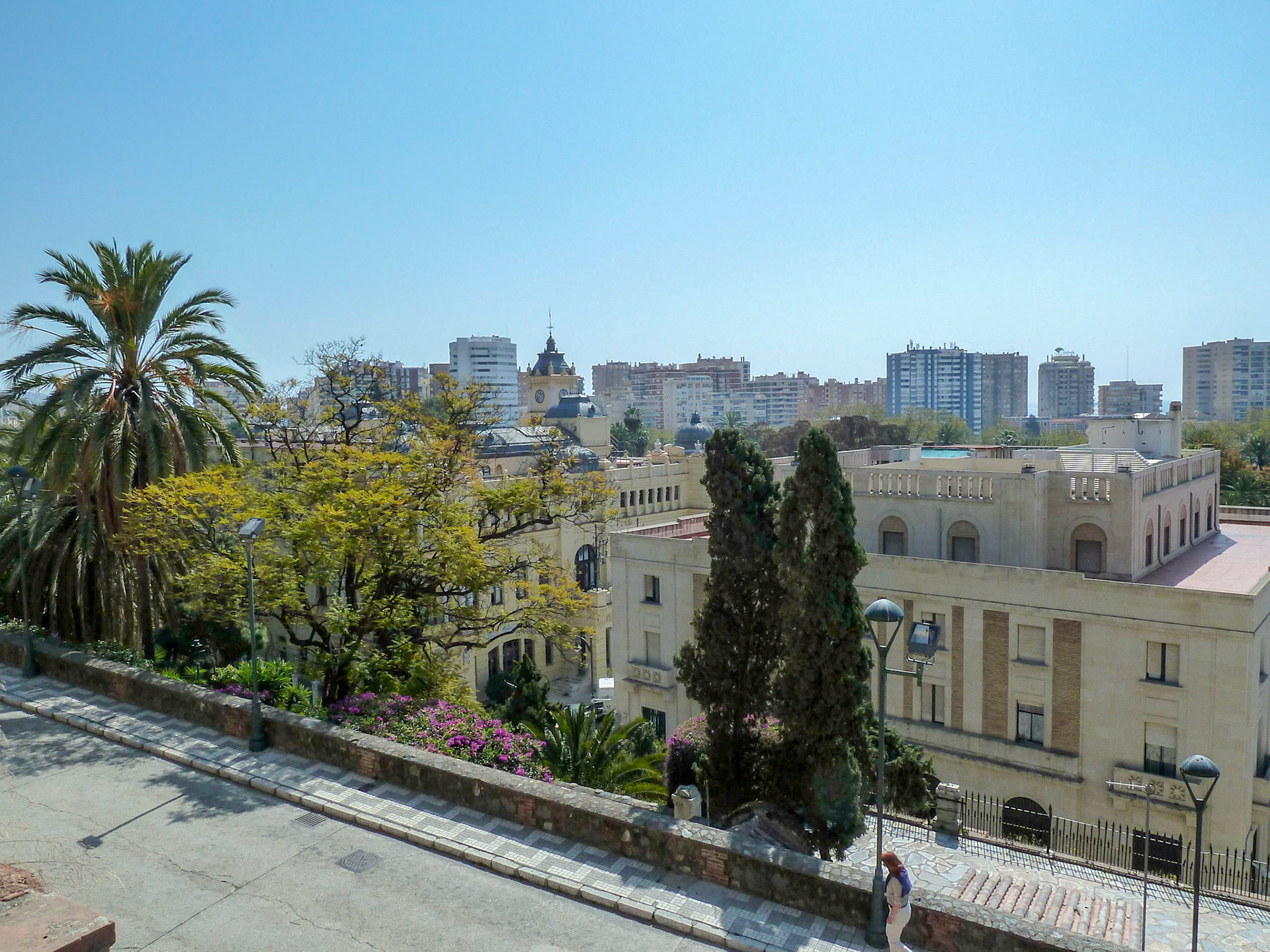
The view south.
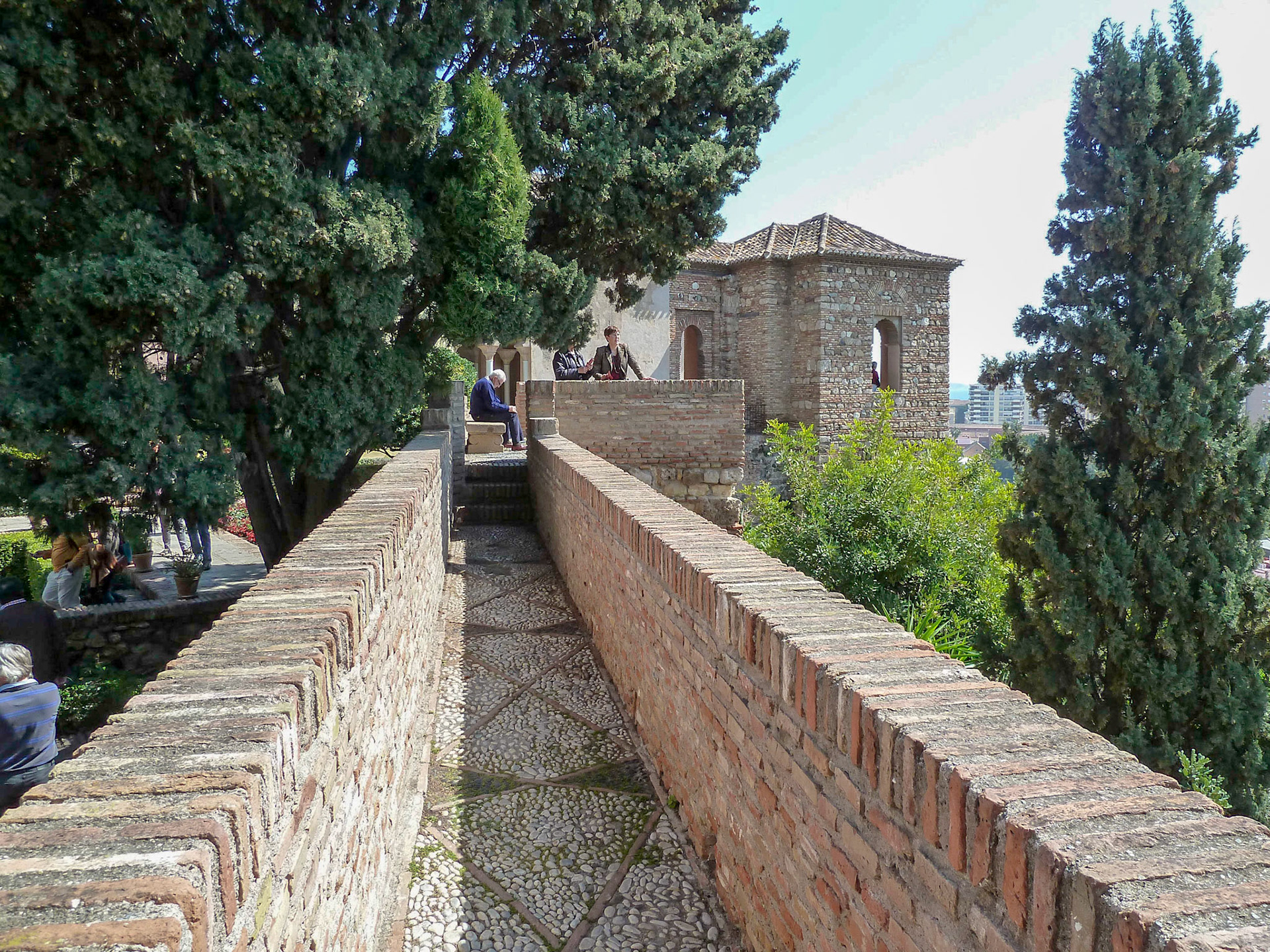
Promenade.
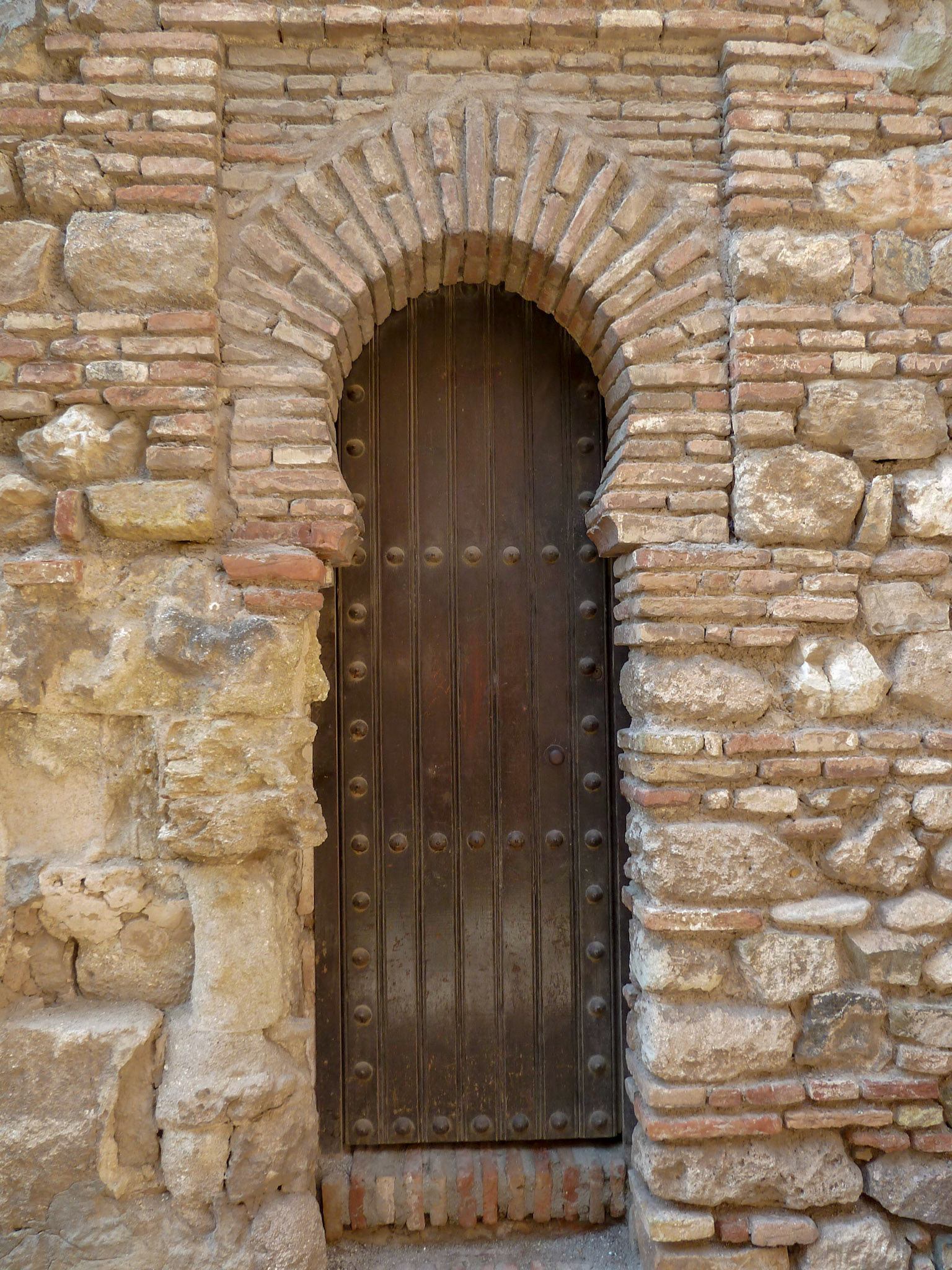
Keyhole door.
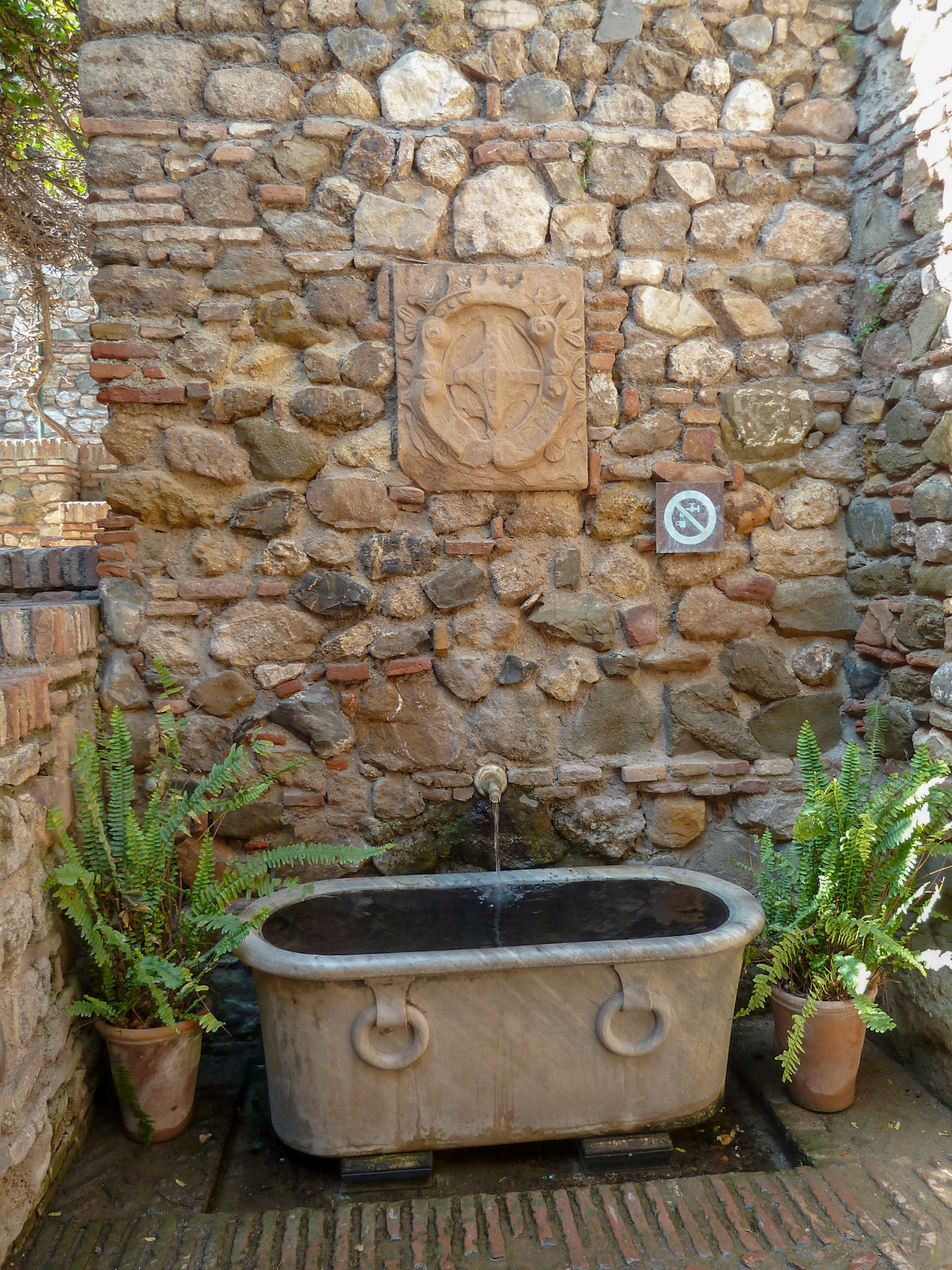
Water.
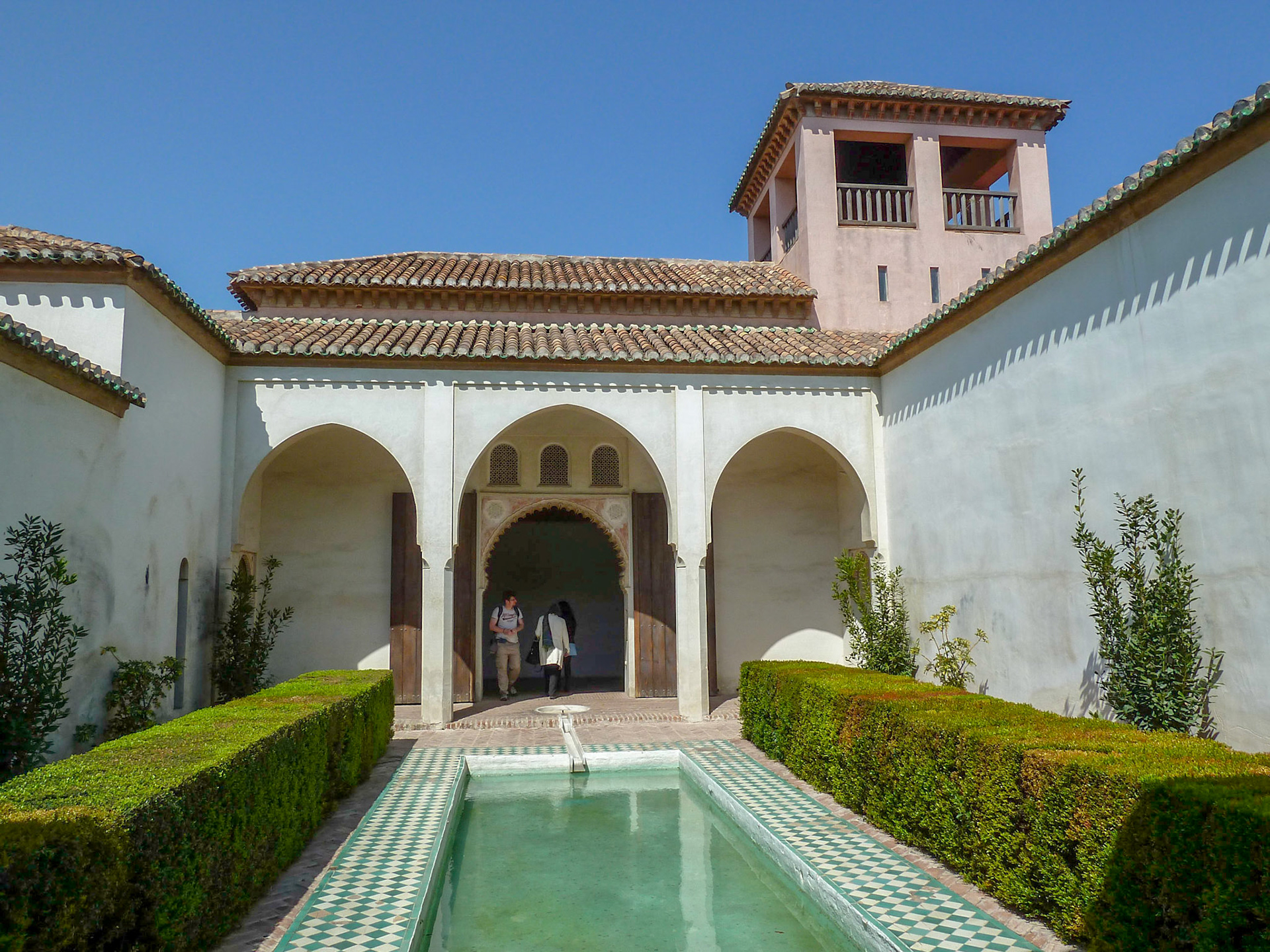
Small interior garden.
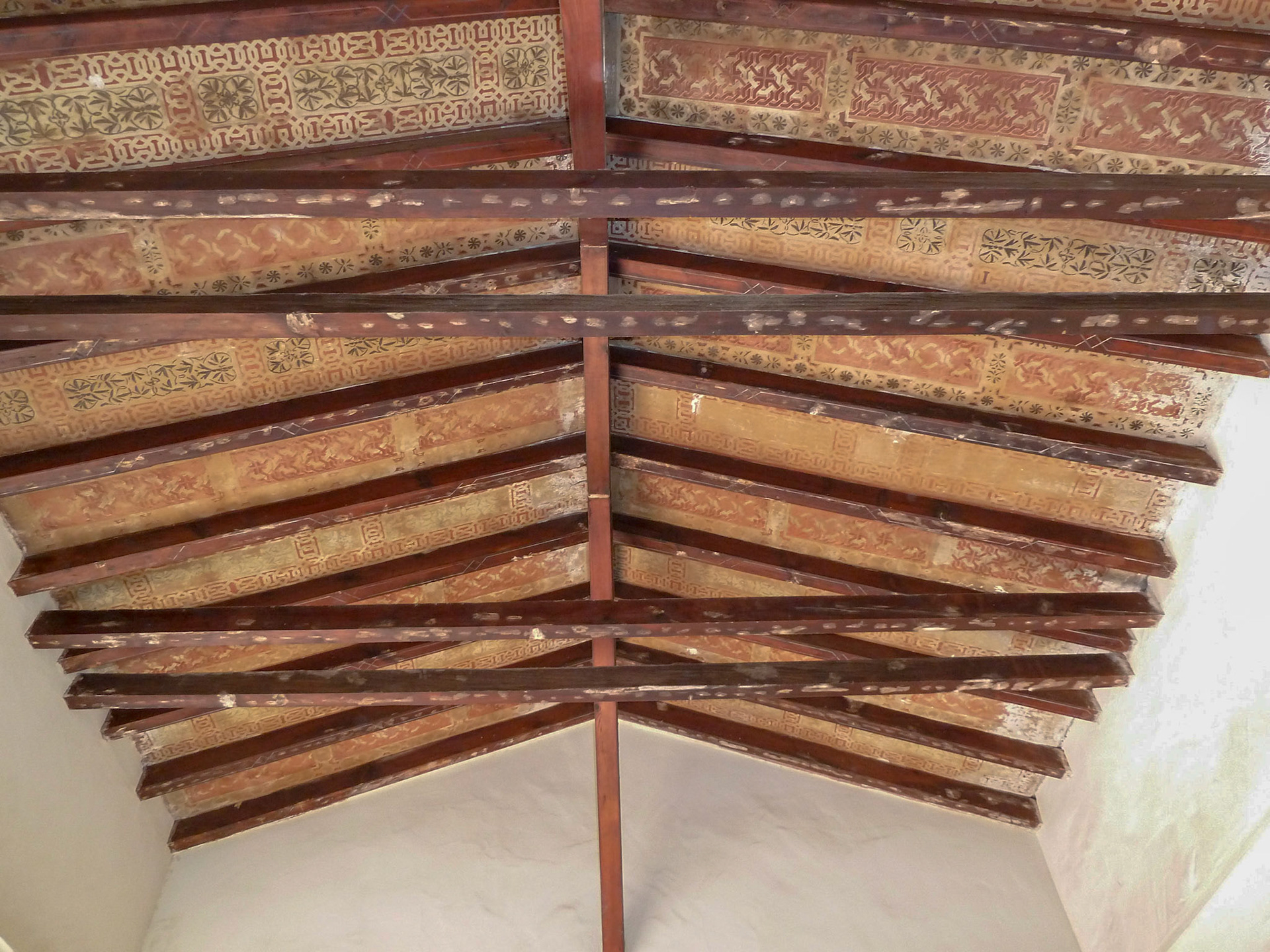
Eaves.
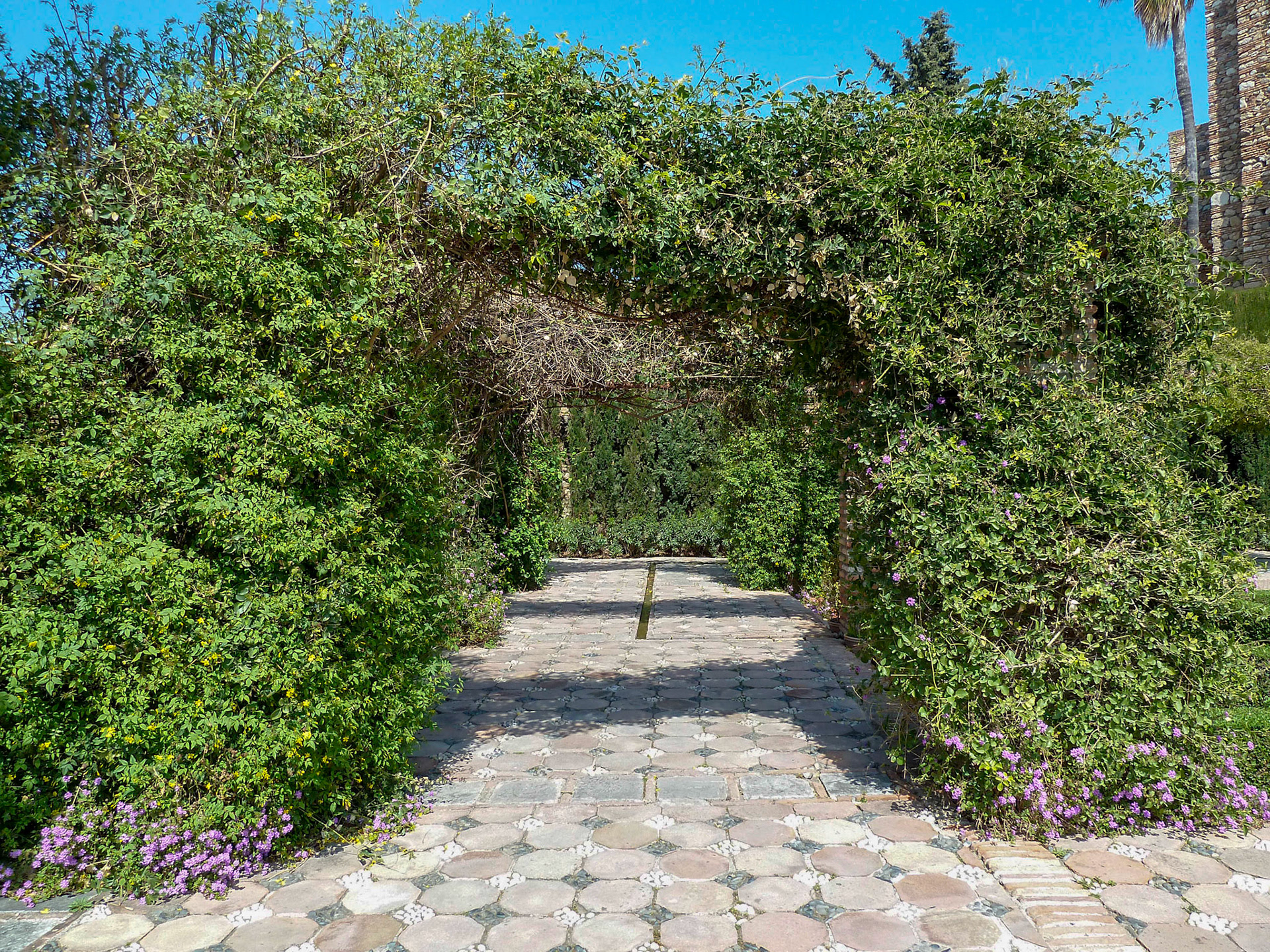
Garden
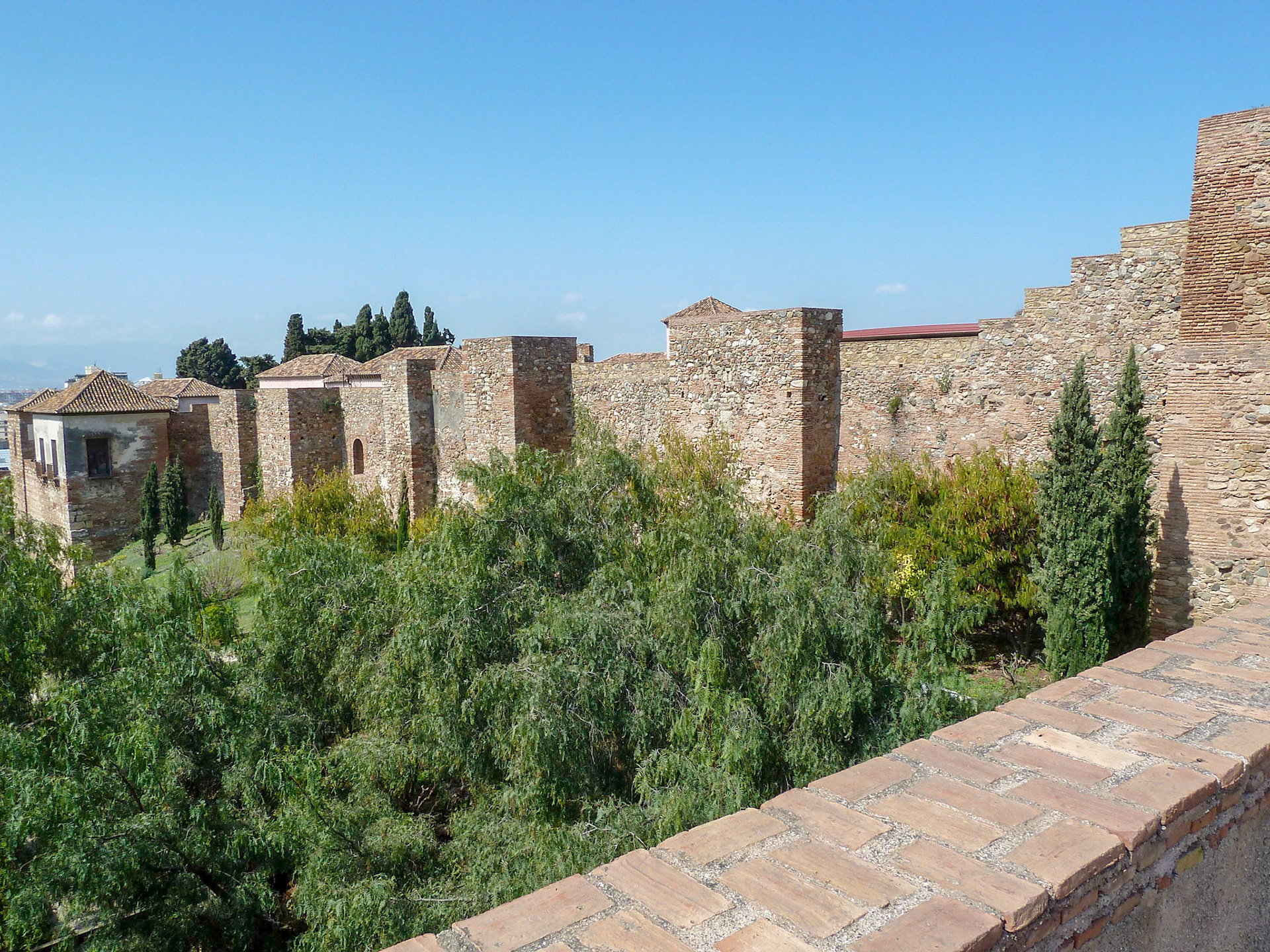
Along the walls.
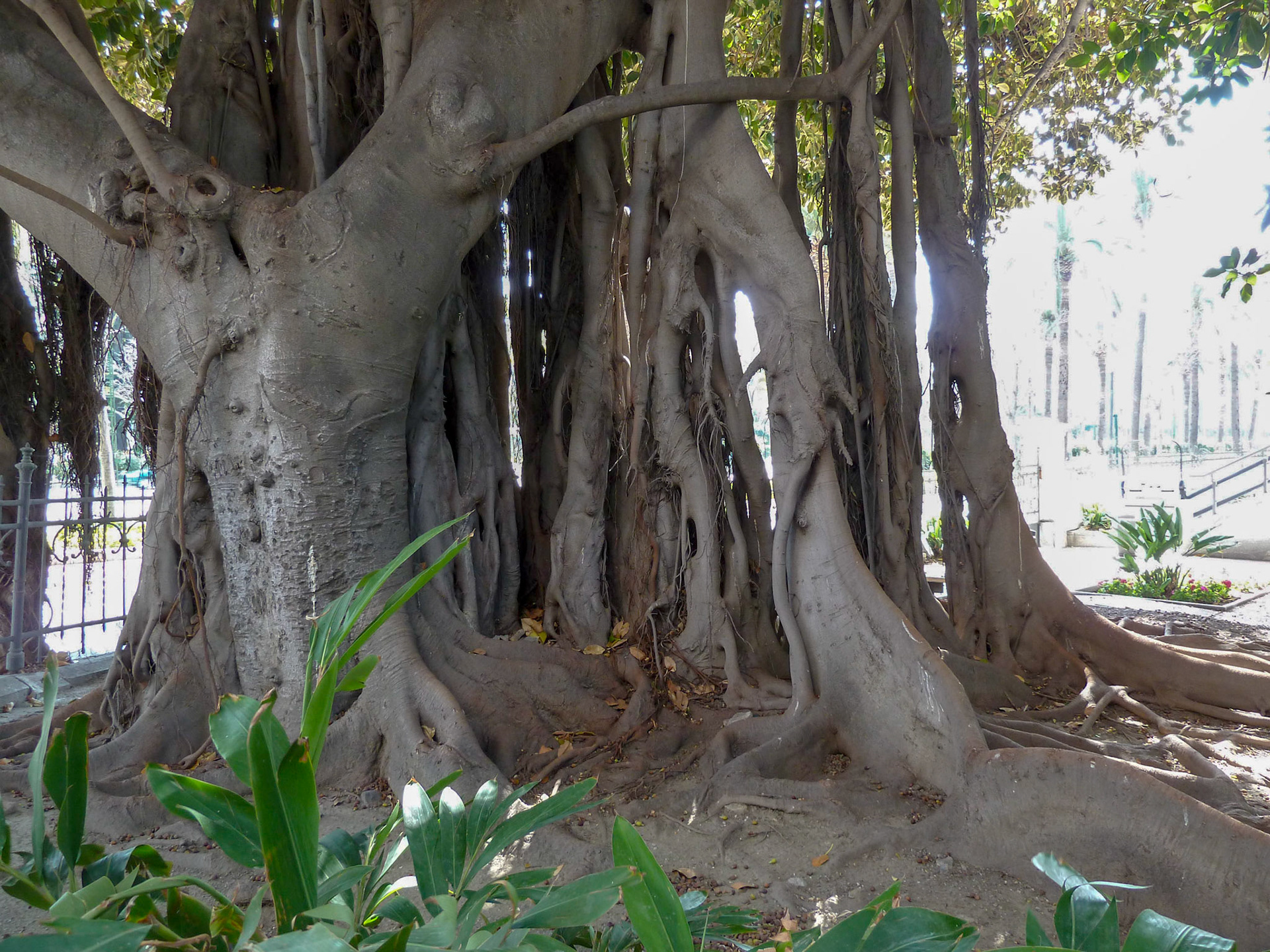
Gardens near the harbor.
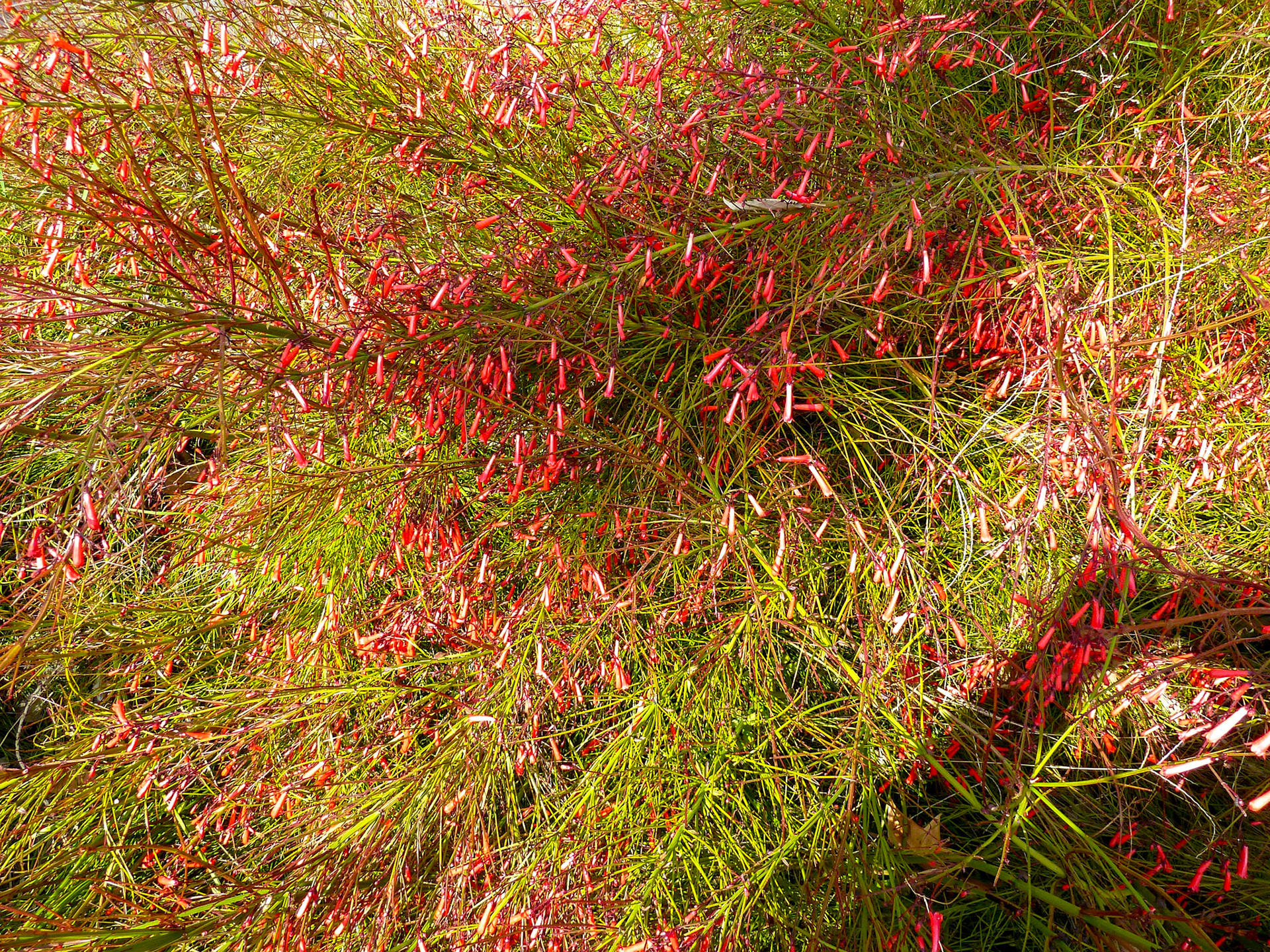
Plant life.
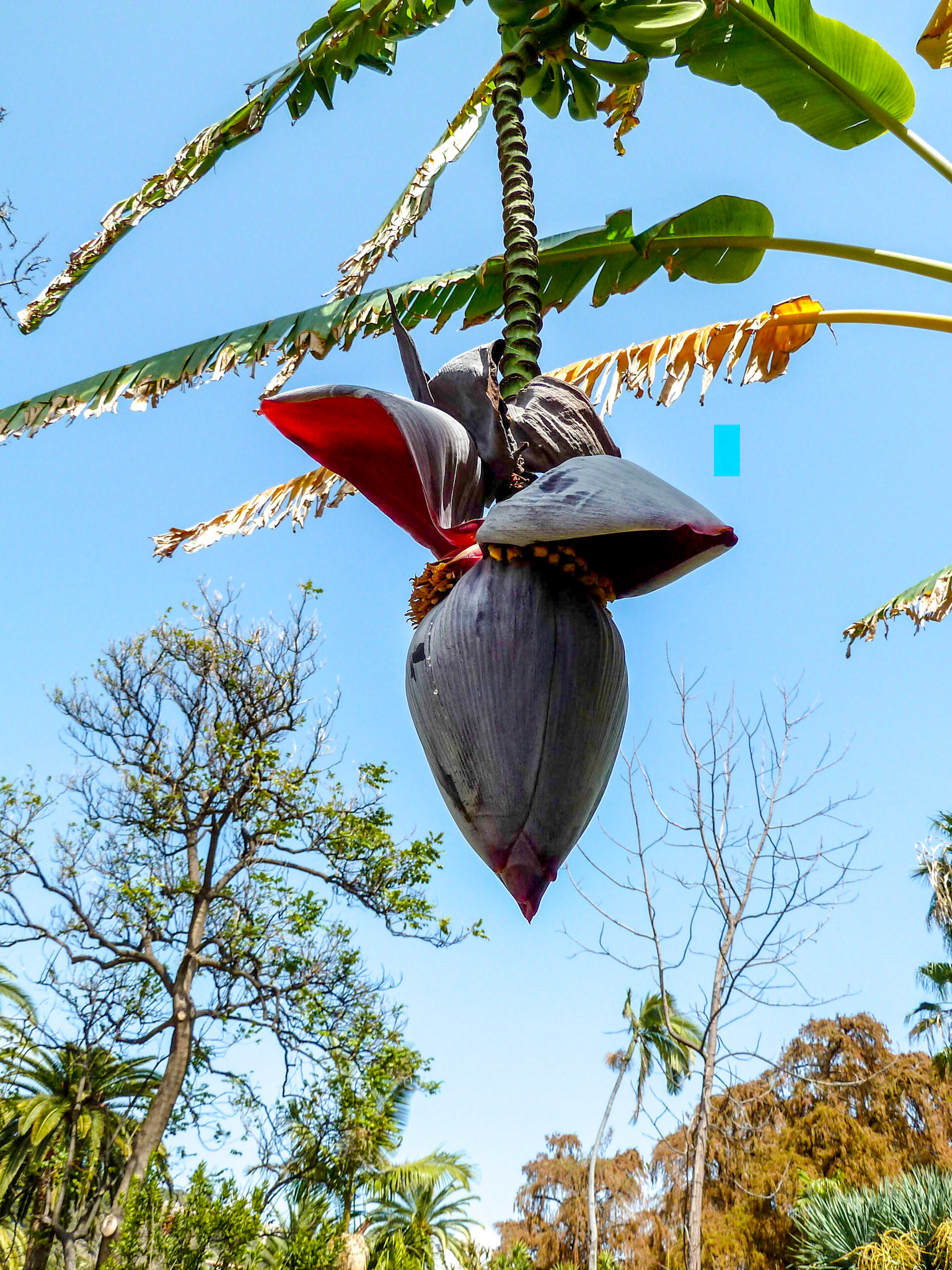
Nut life.
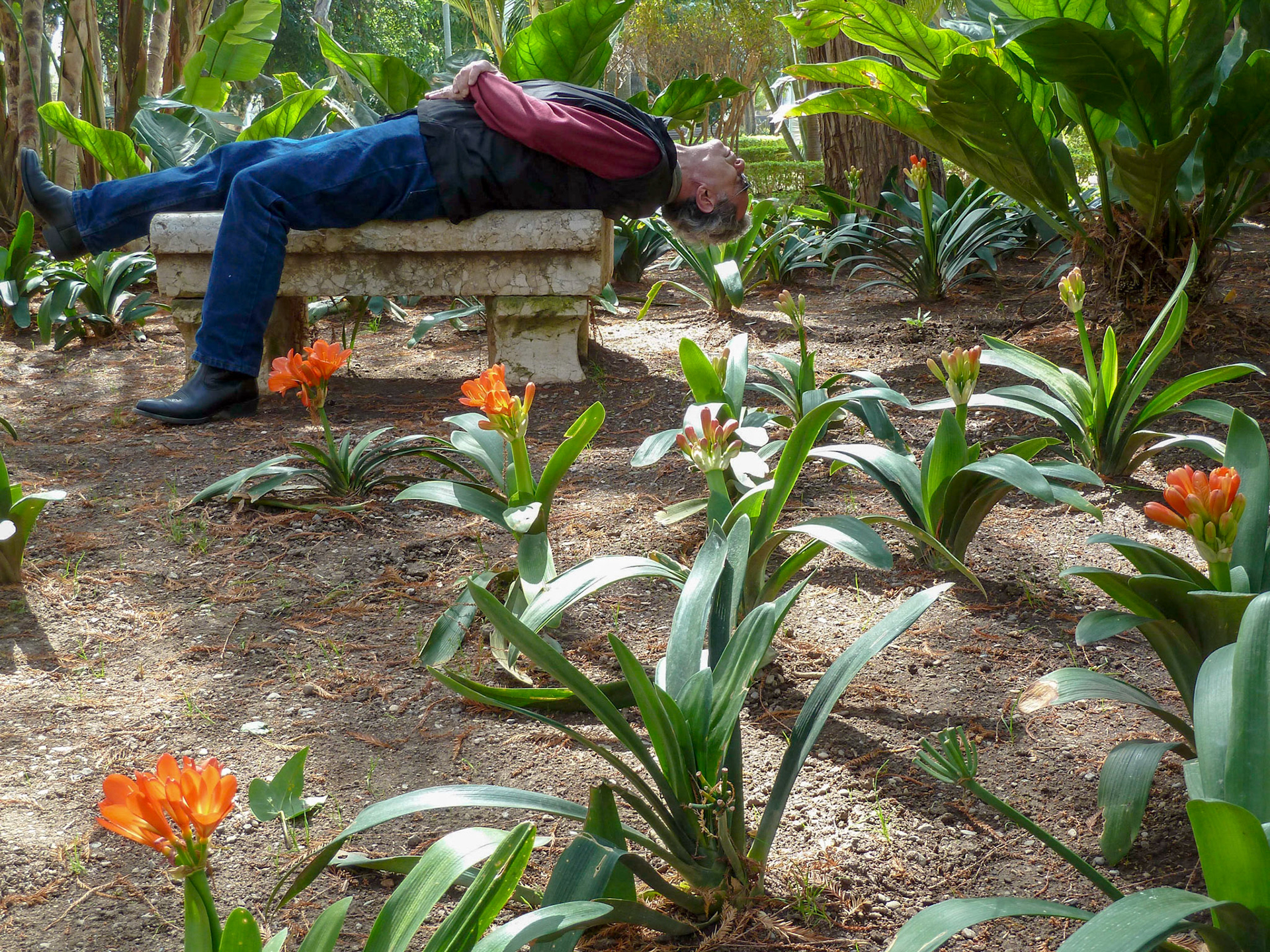
Uncomfortable pose.
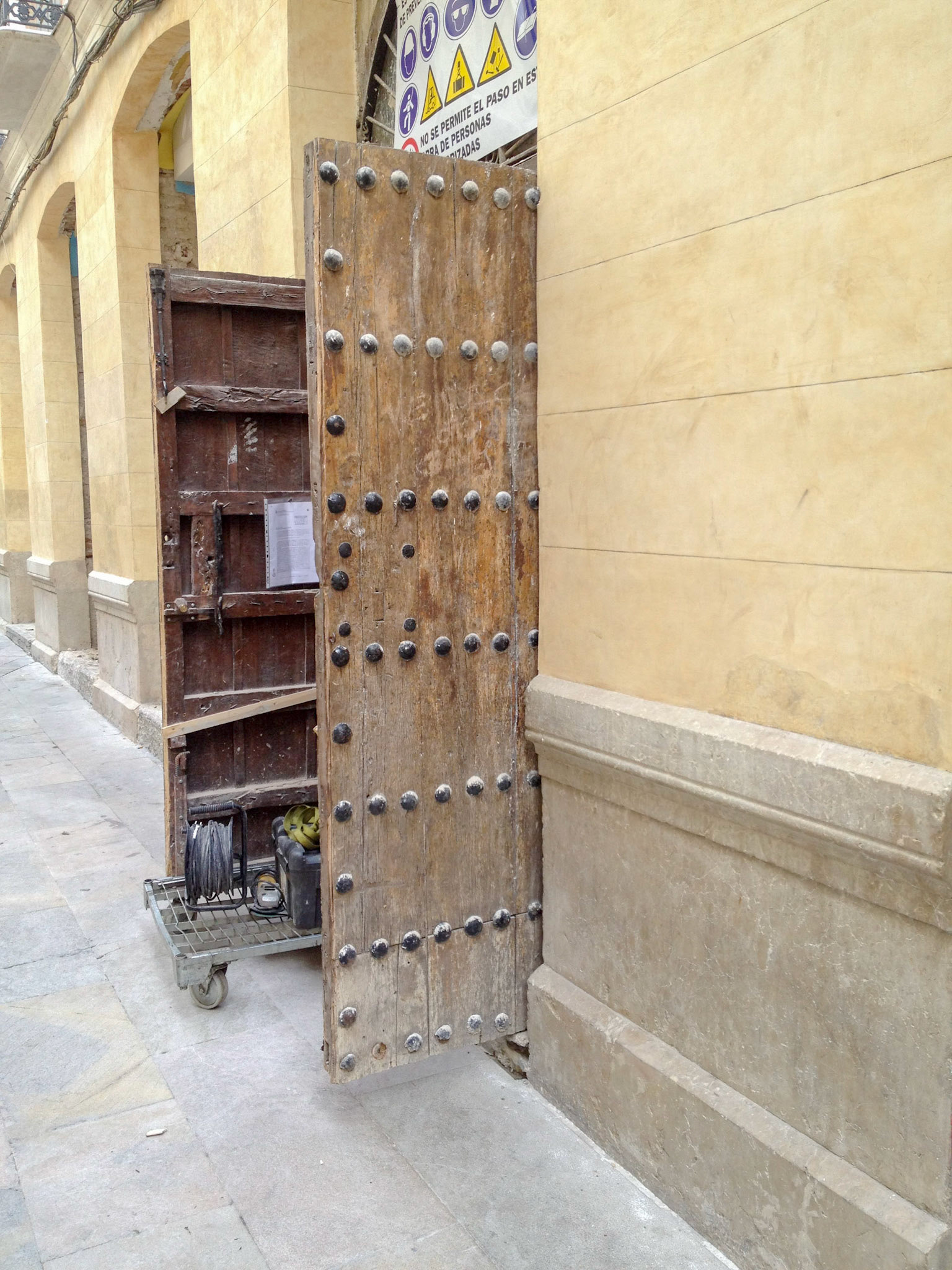
Door.
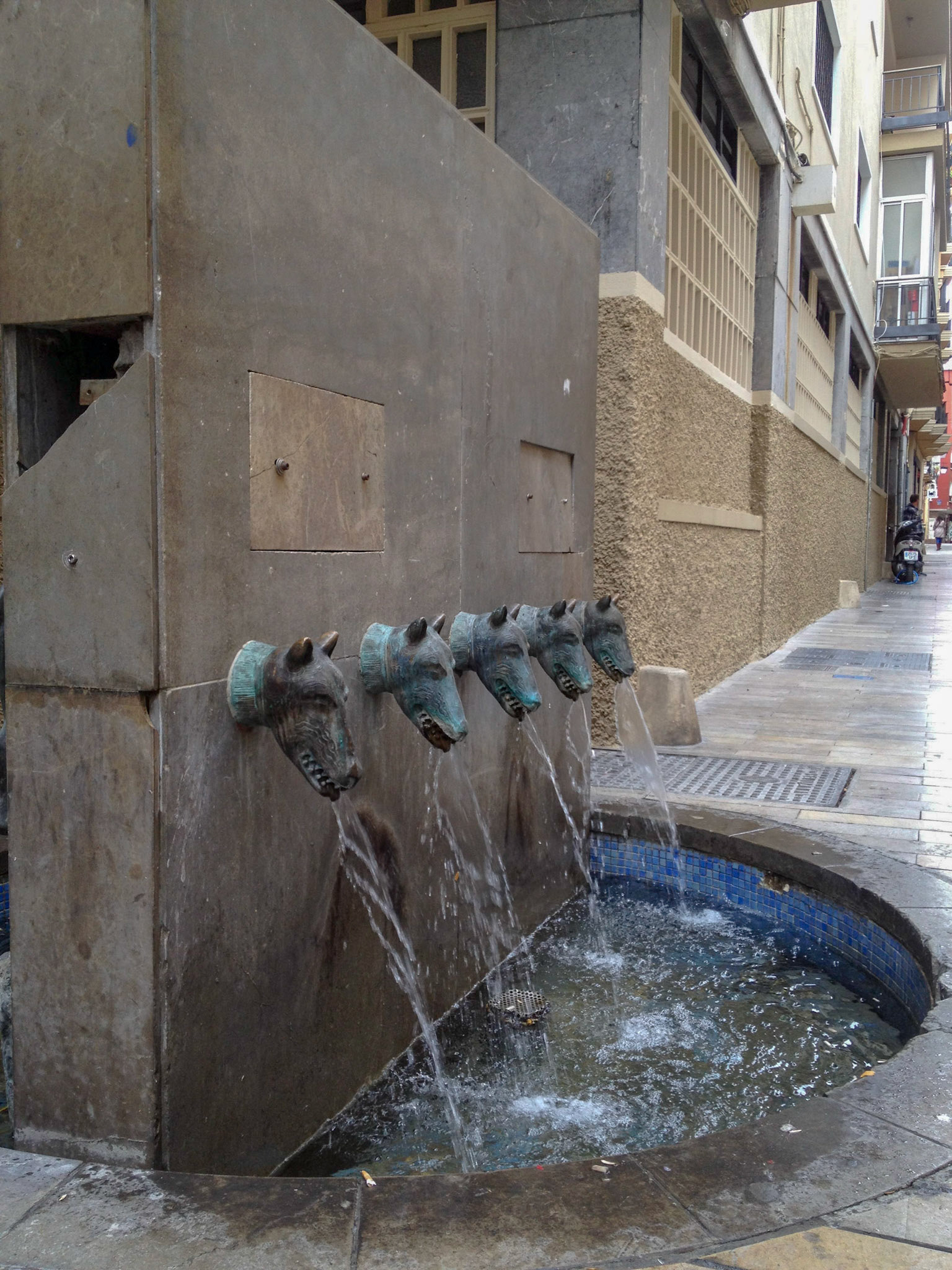
Great public street art.
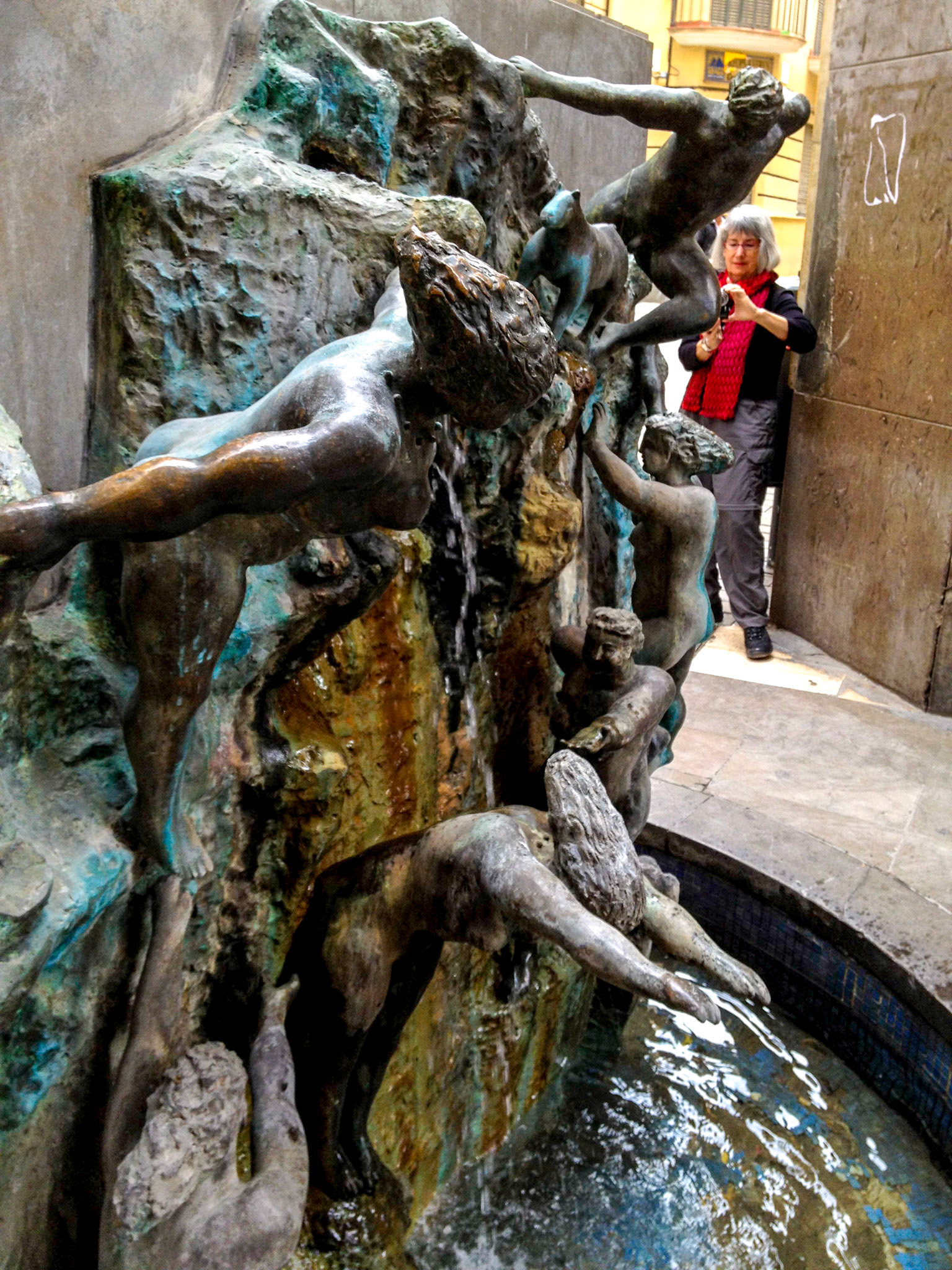
Art and Linny.
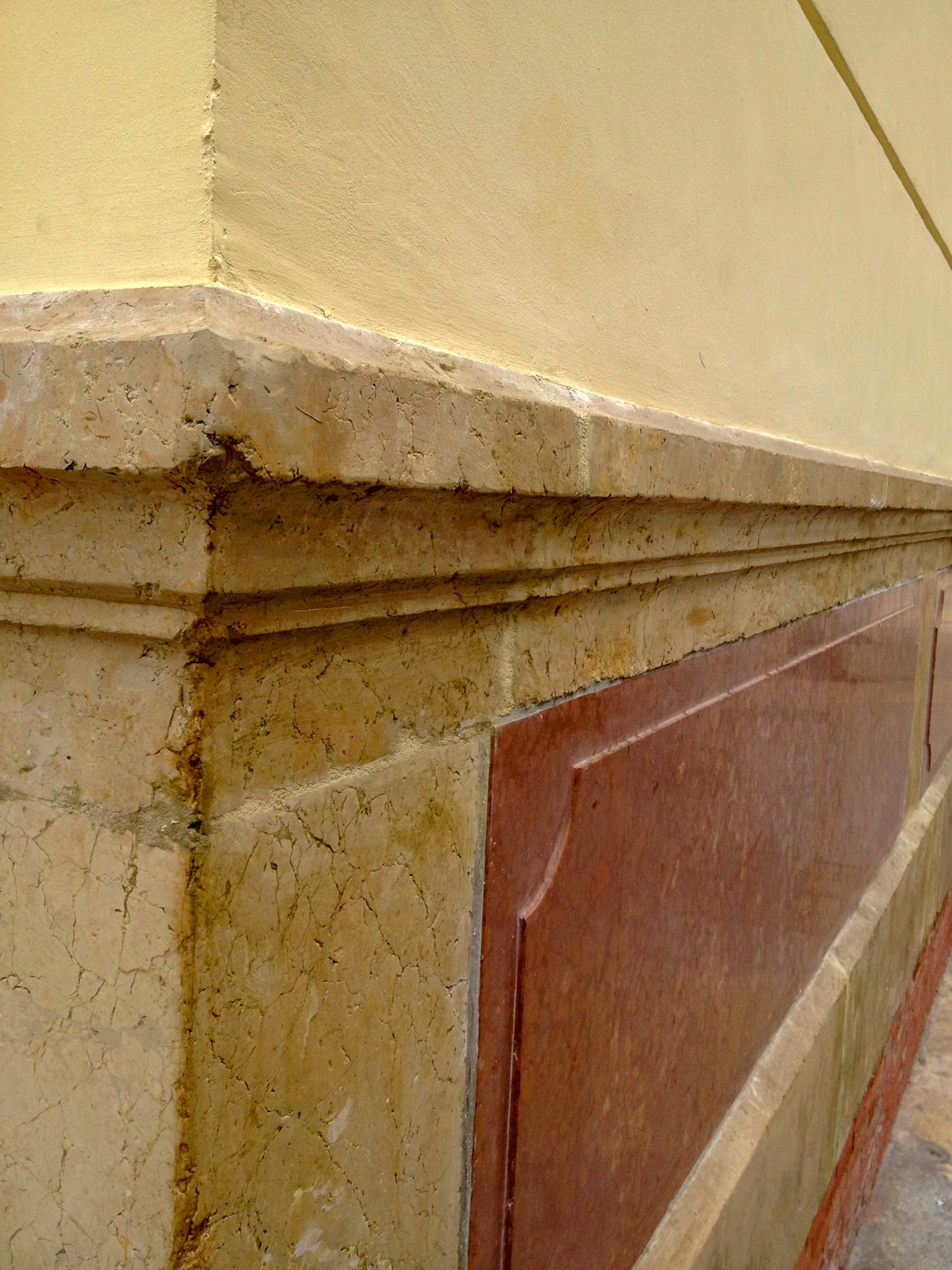
Corner.
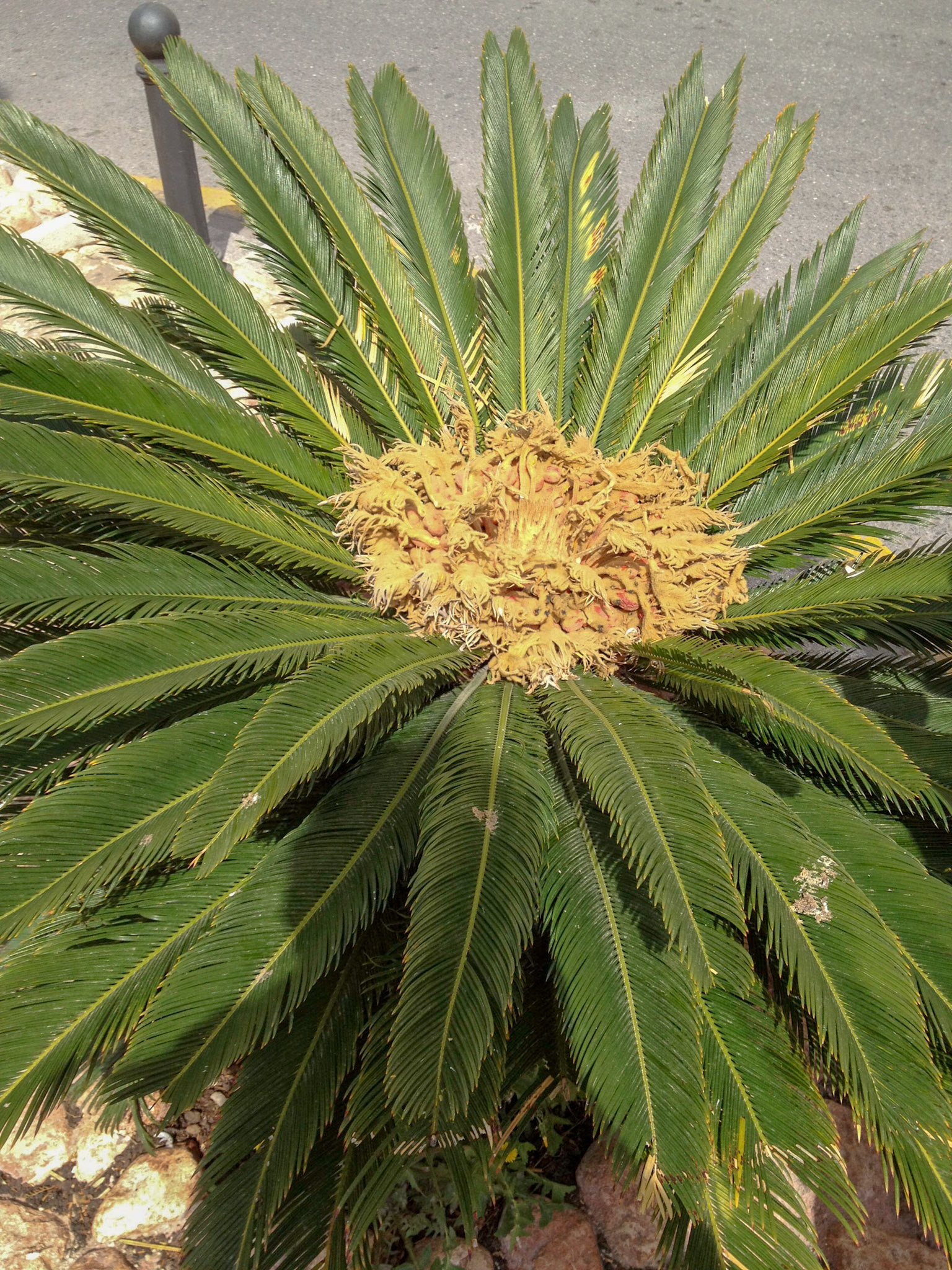
Monster.
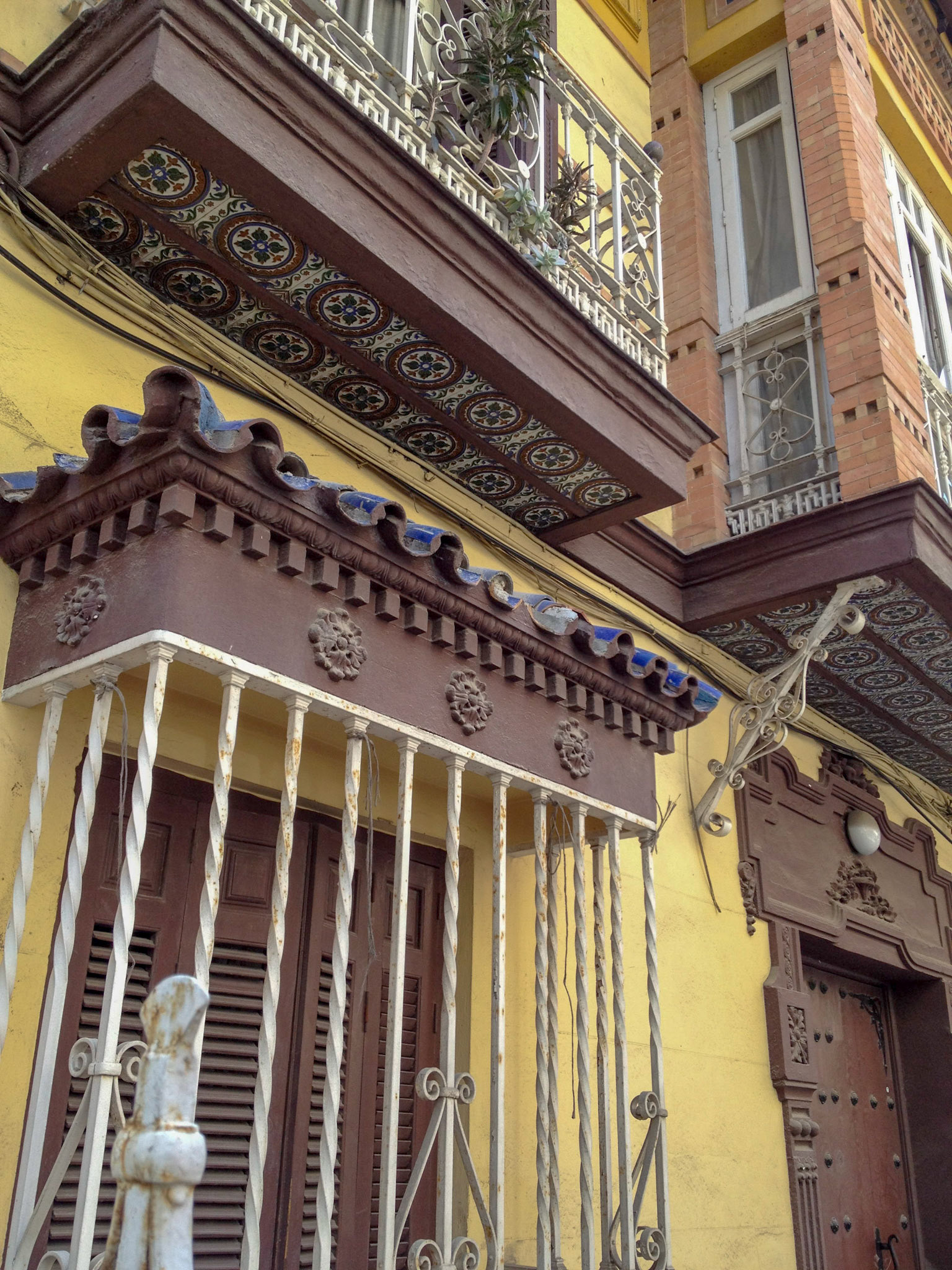
Old apartments.
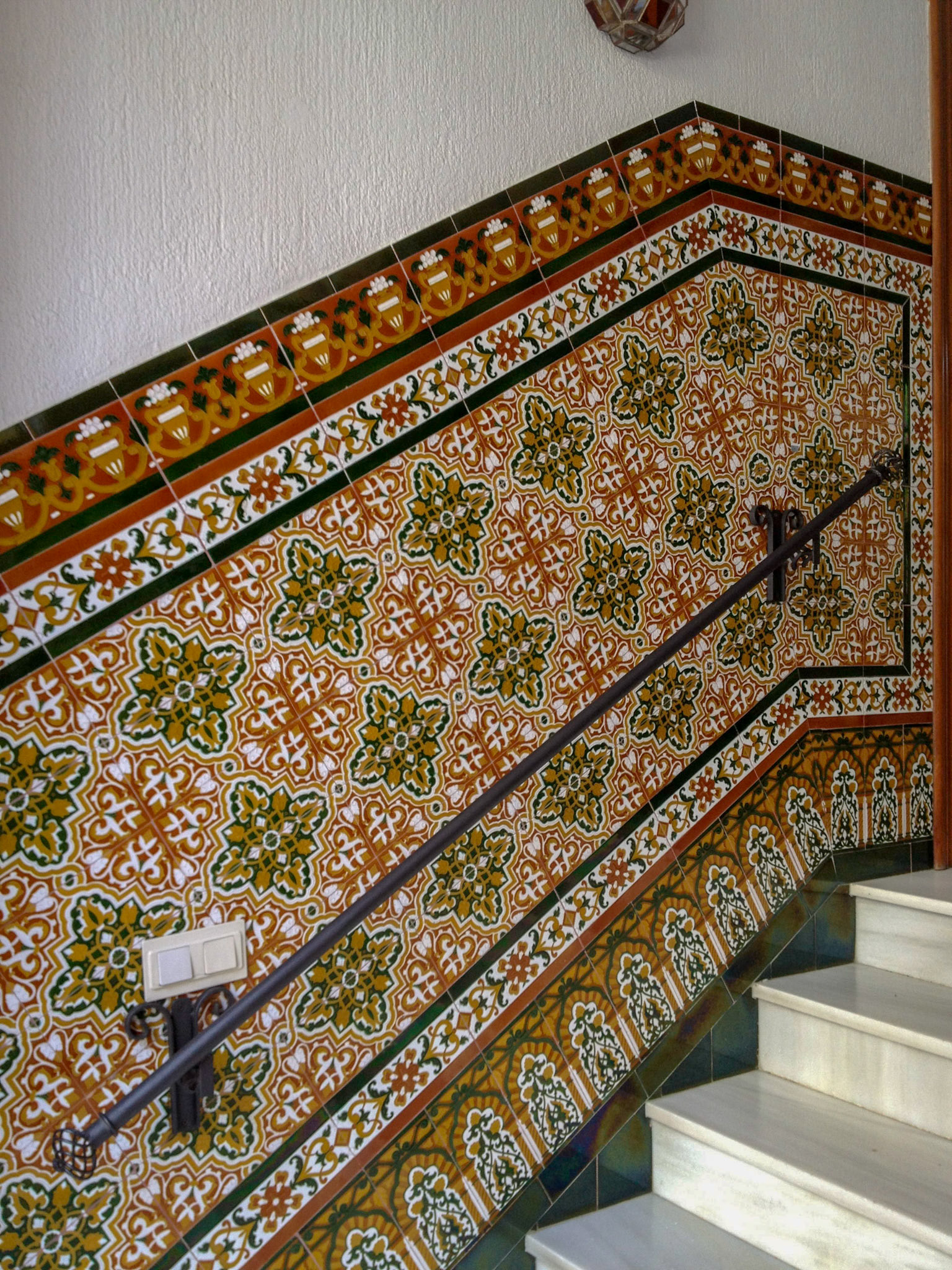
Someone's stairxase.
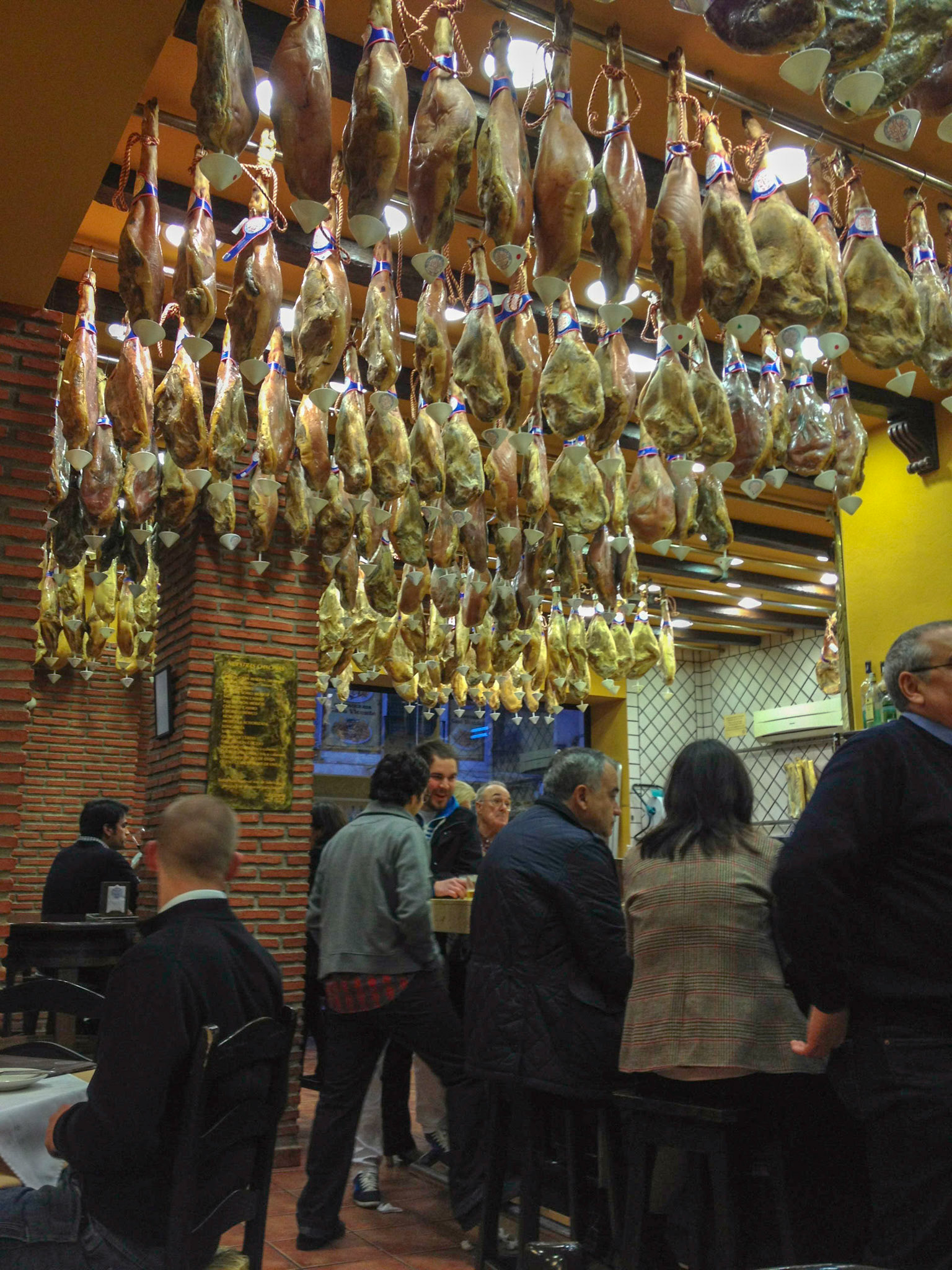
Jambon.
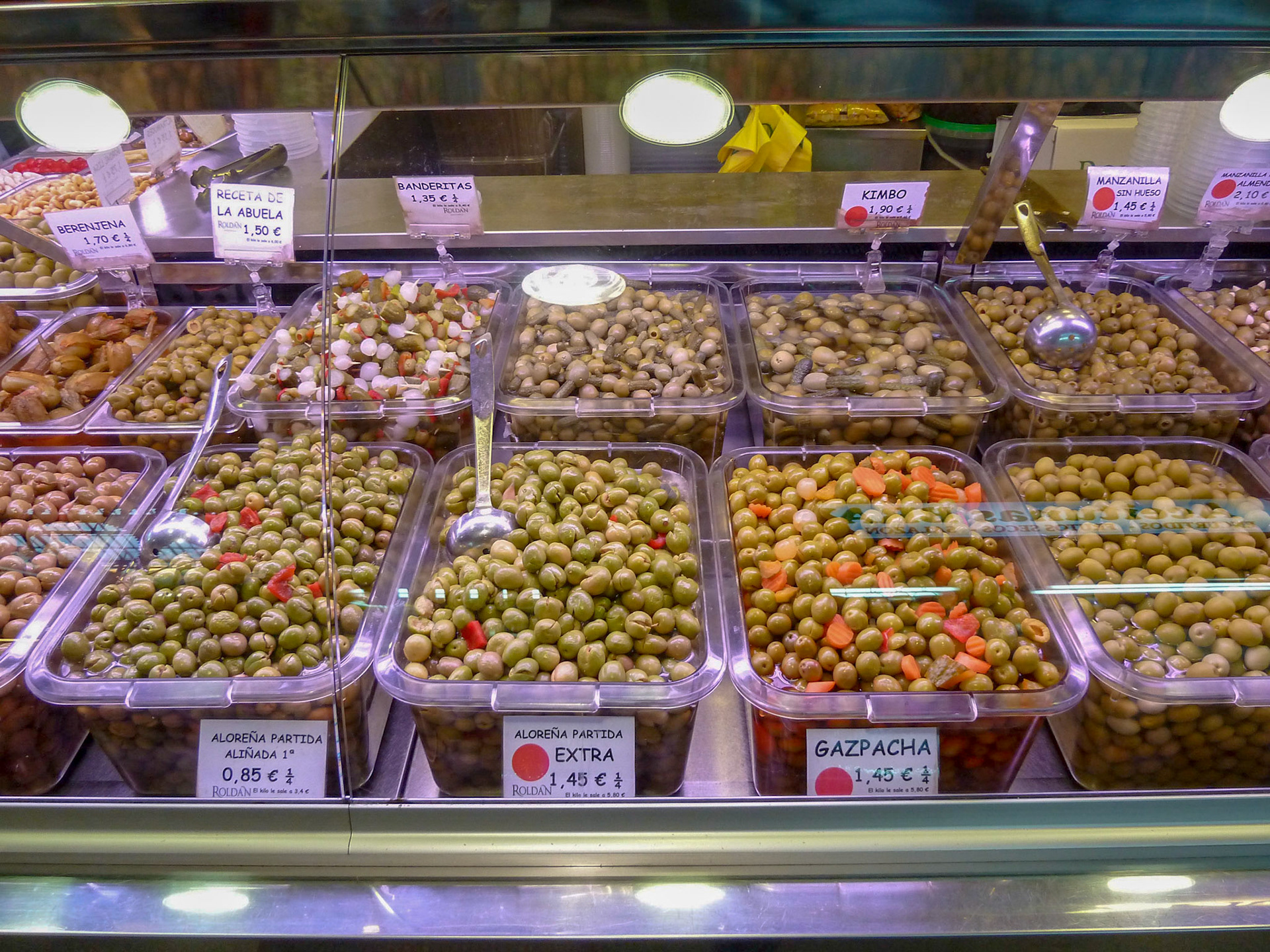
I've got a mission to eat as many types as possible. Prices are Euros per kilo and about 25% of in the US.
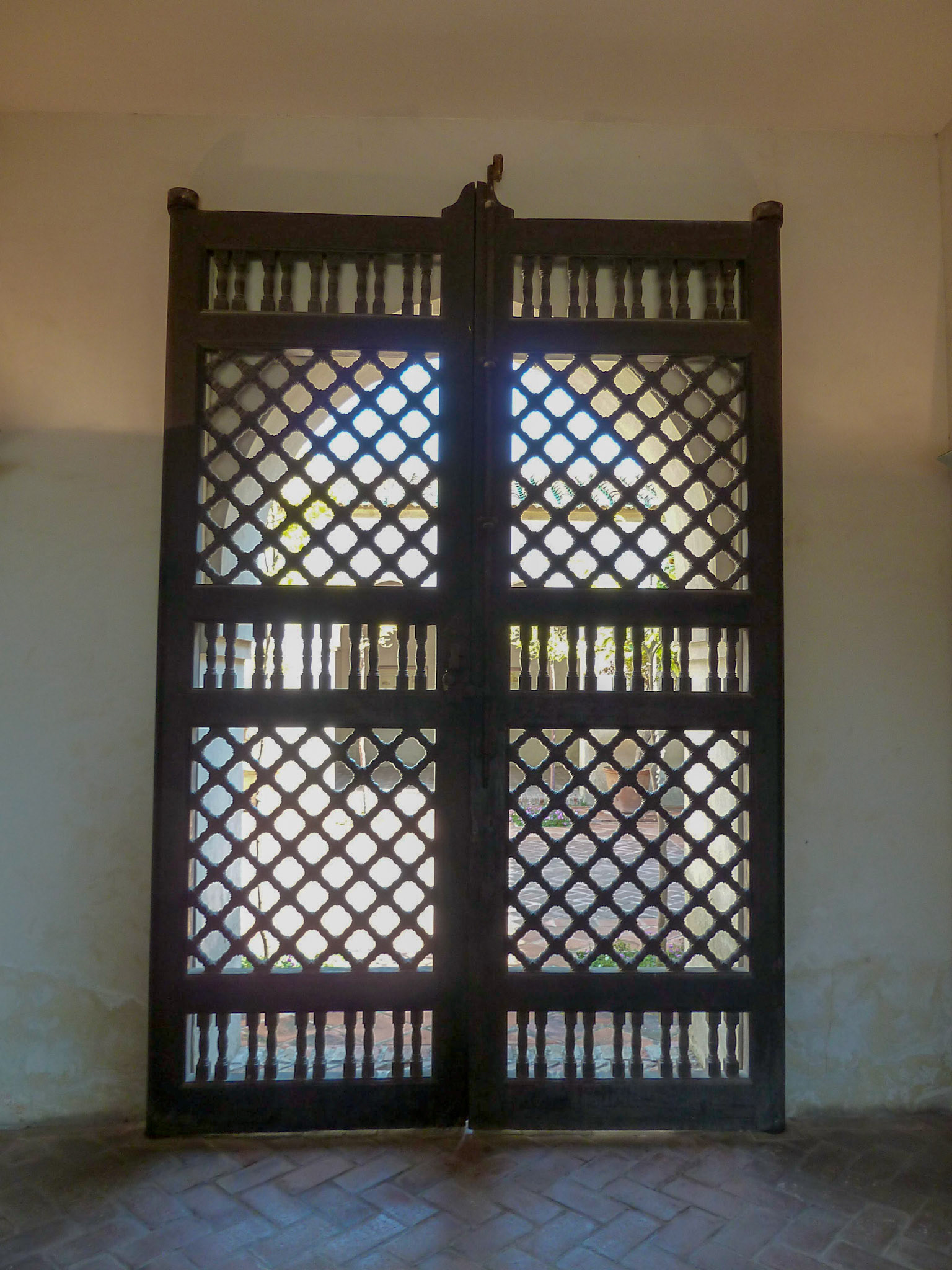
Screened window.
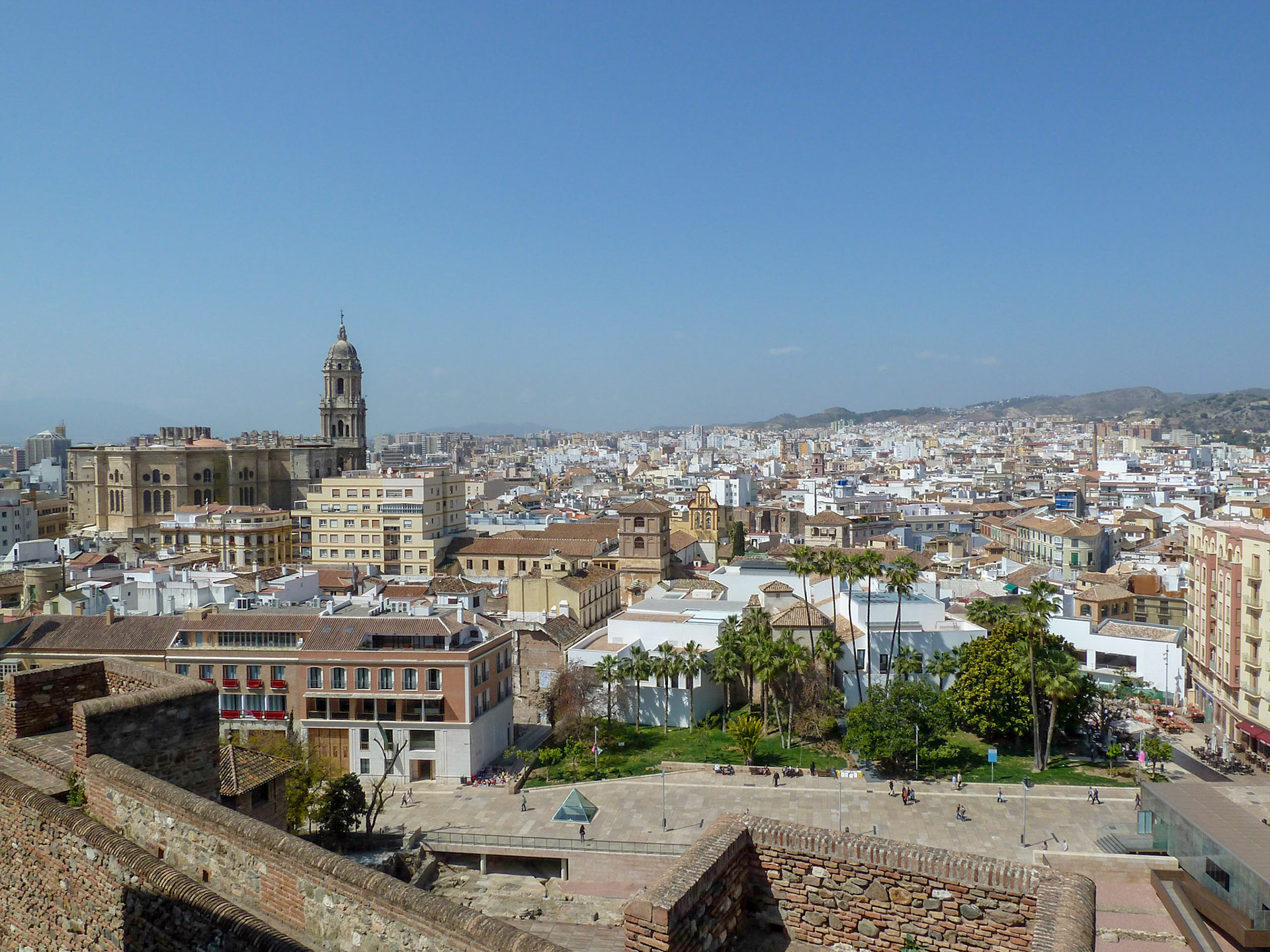
Cityscape.
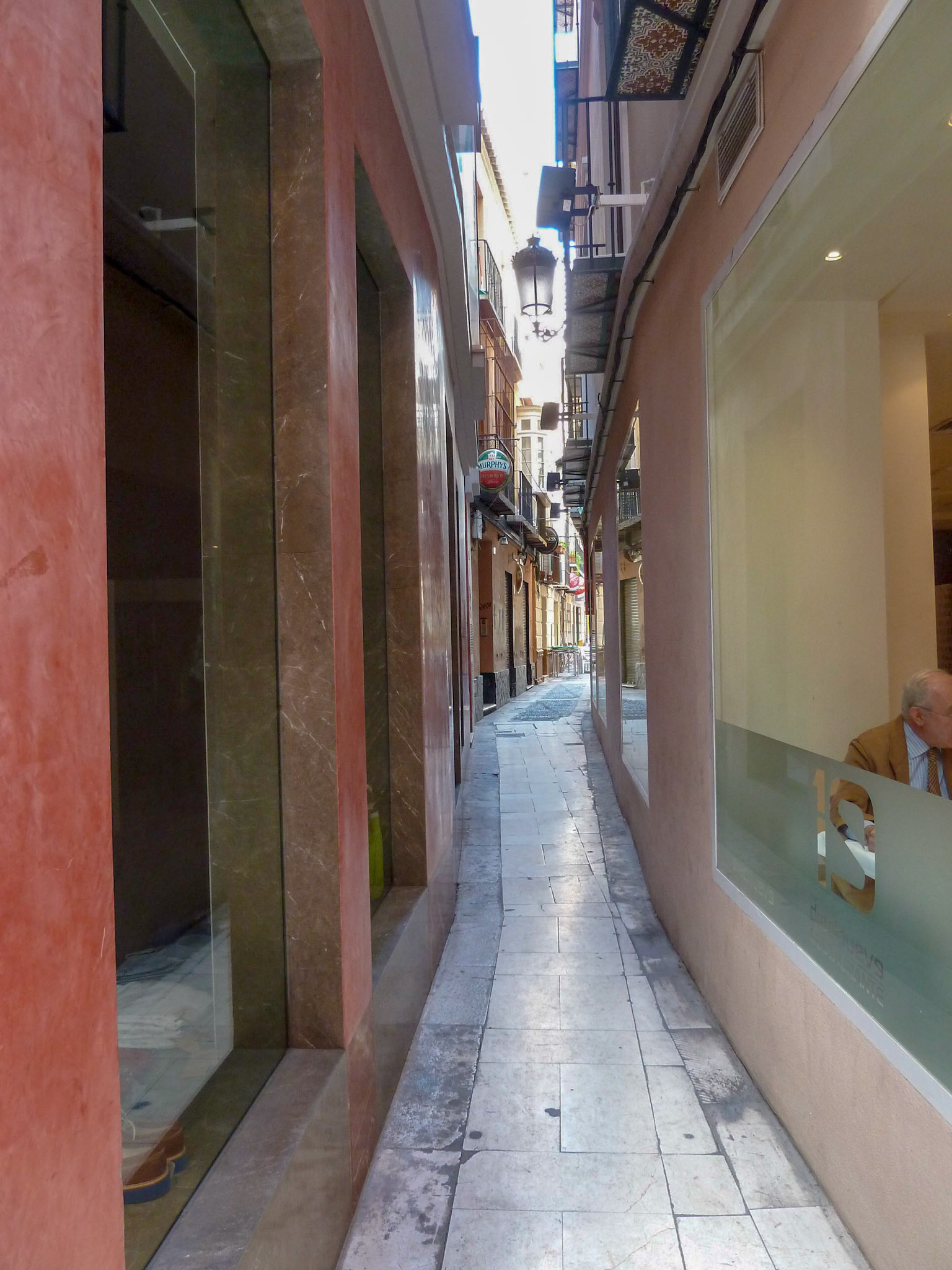
A warren of small streets.
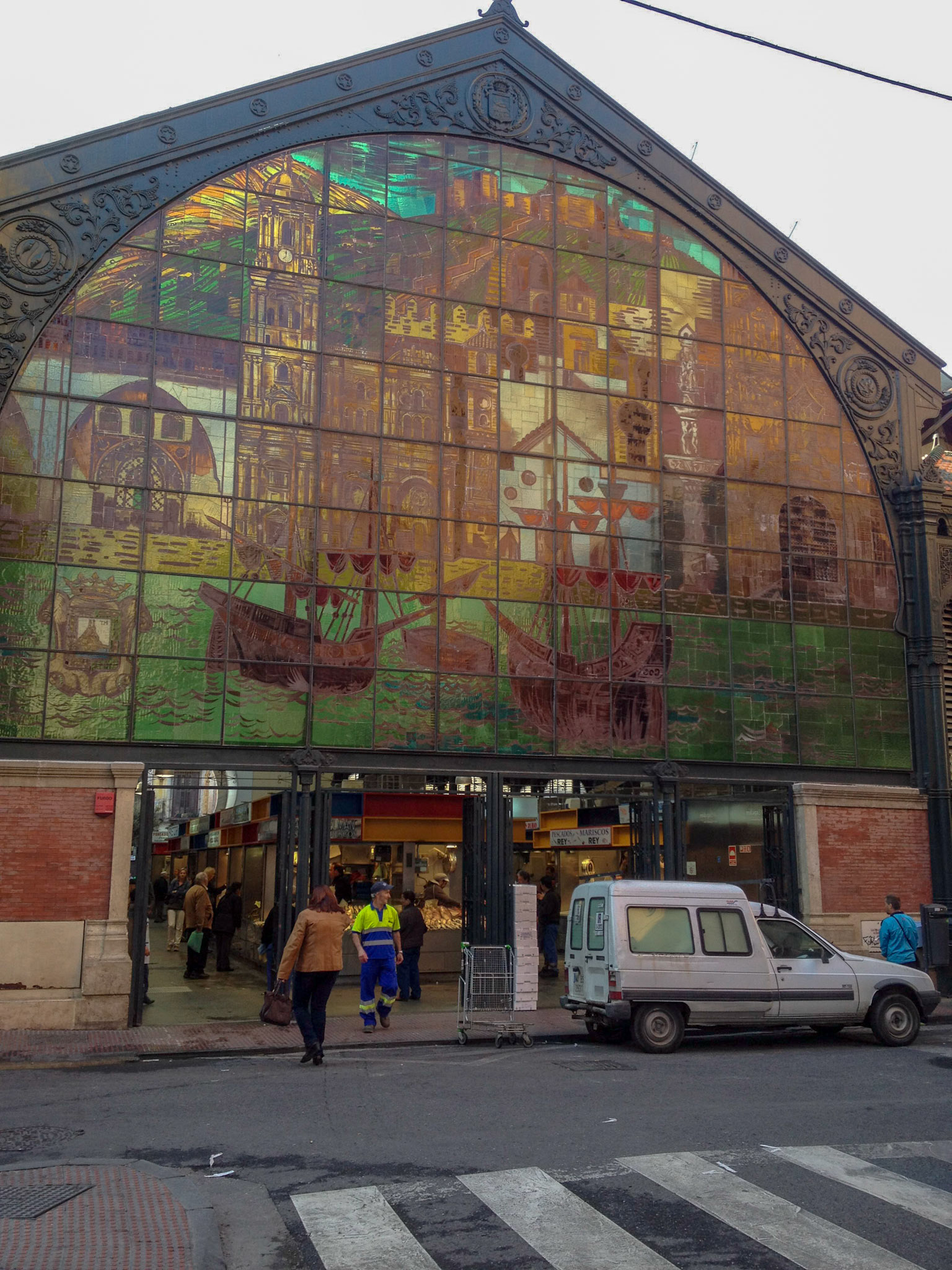
The public market.
